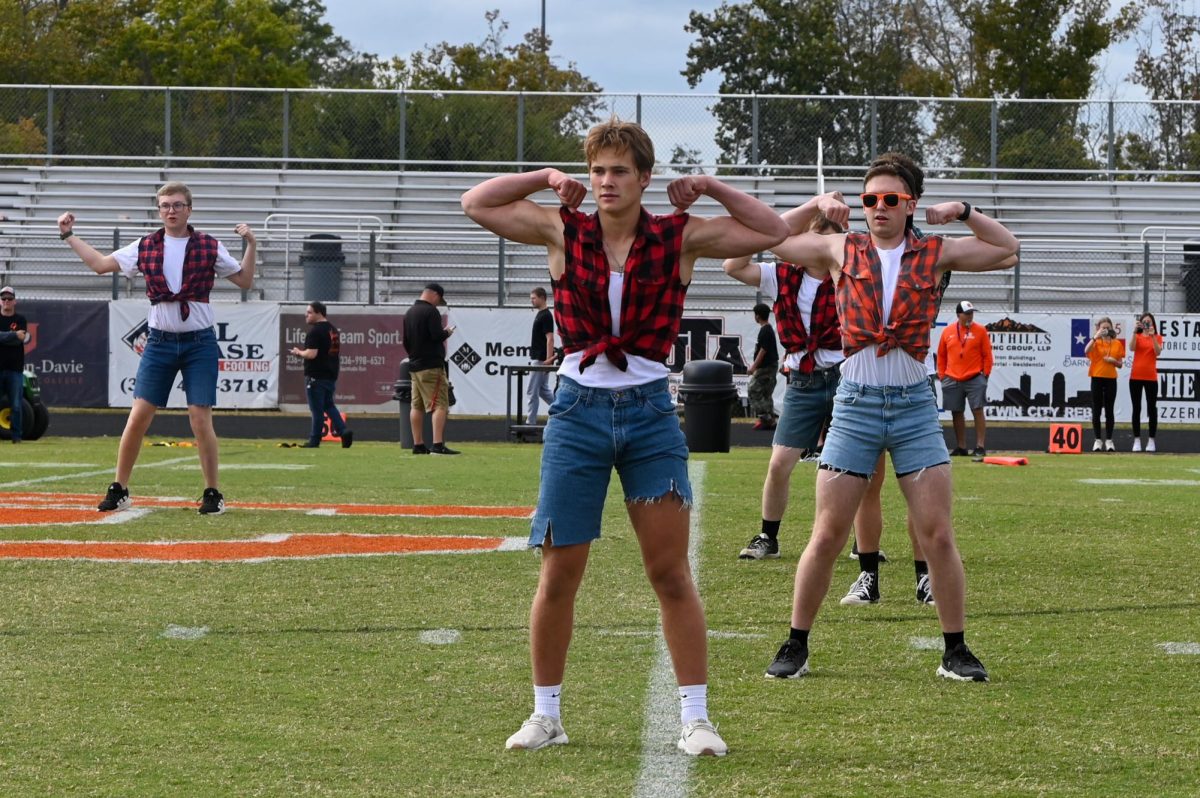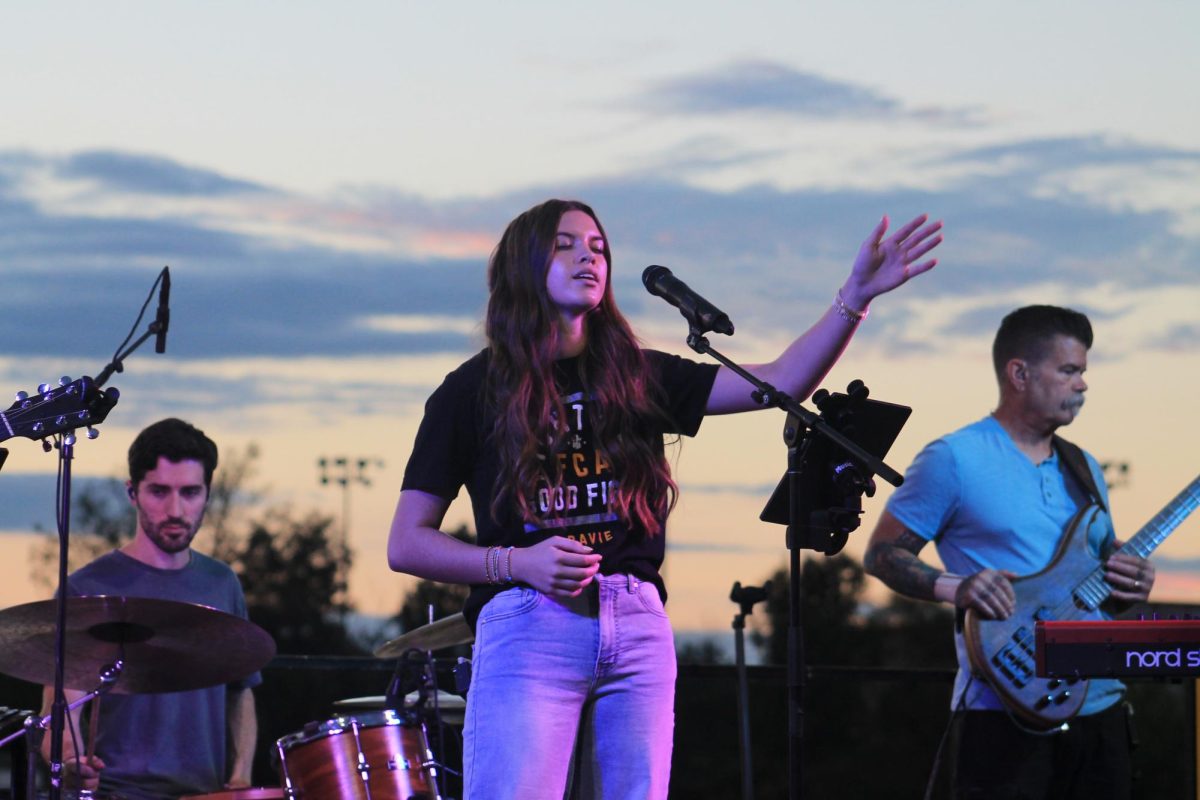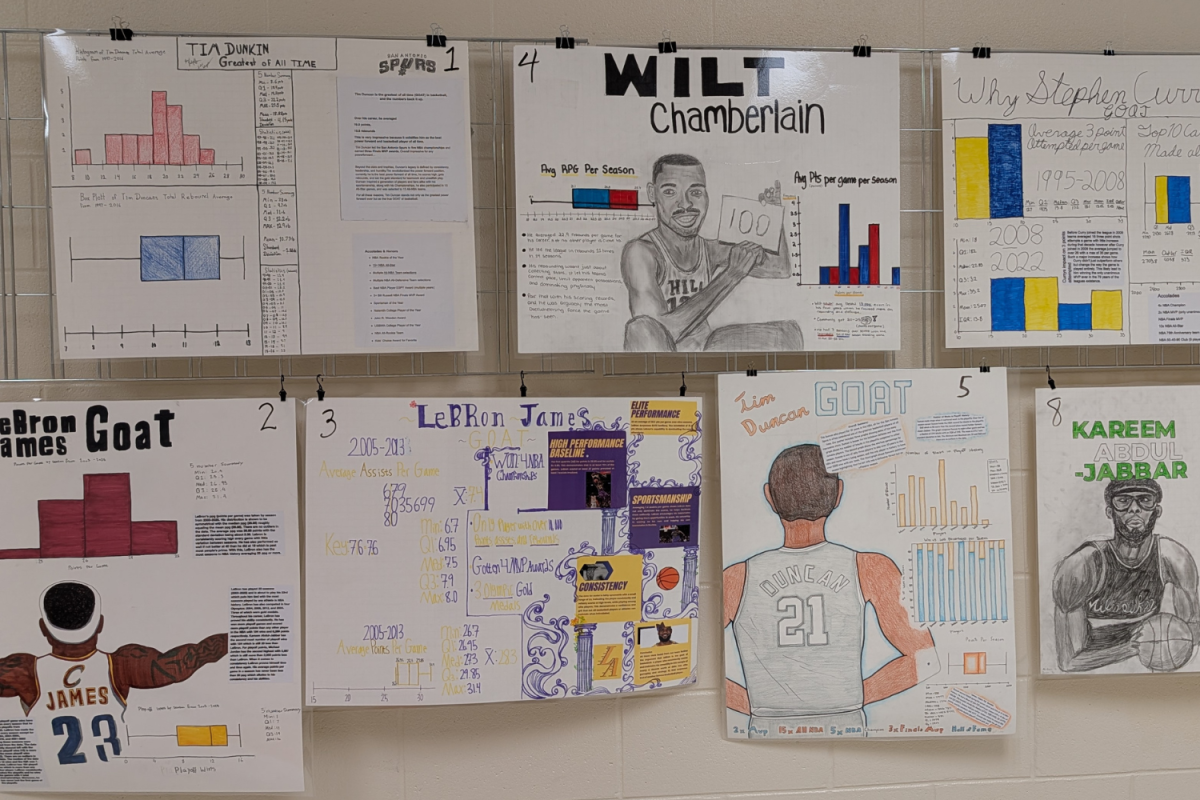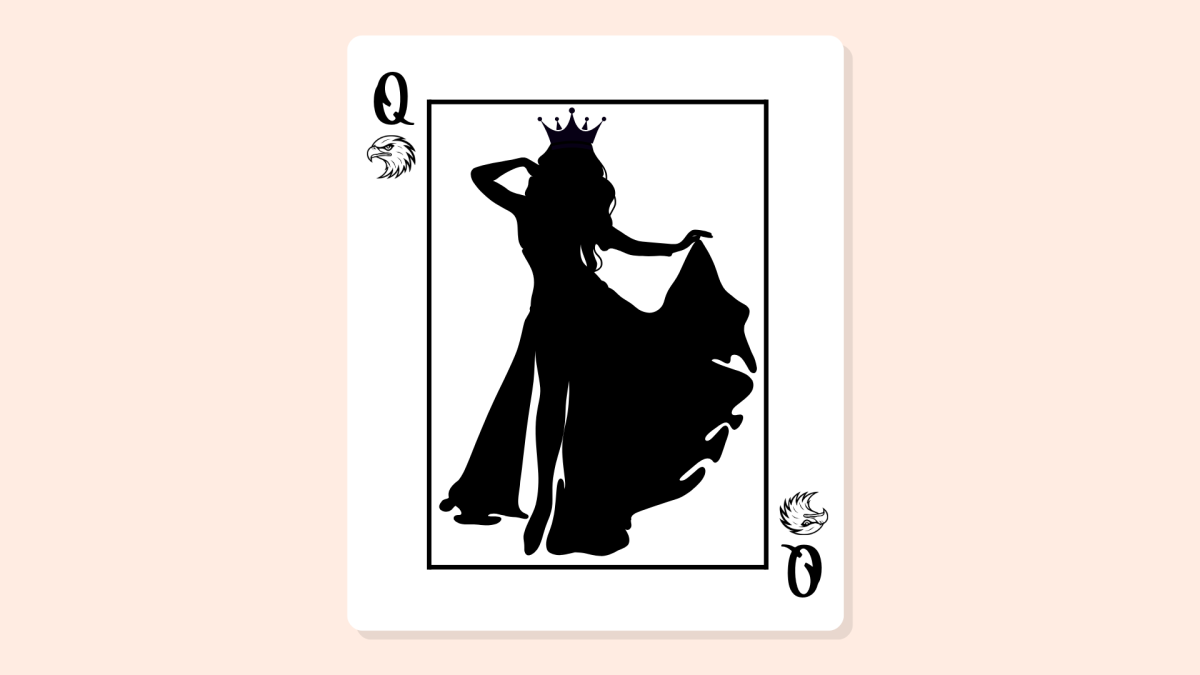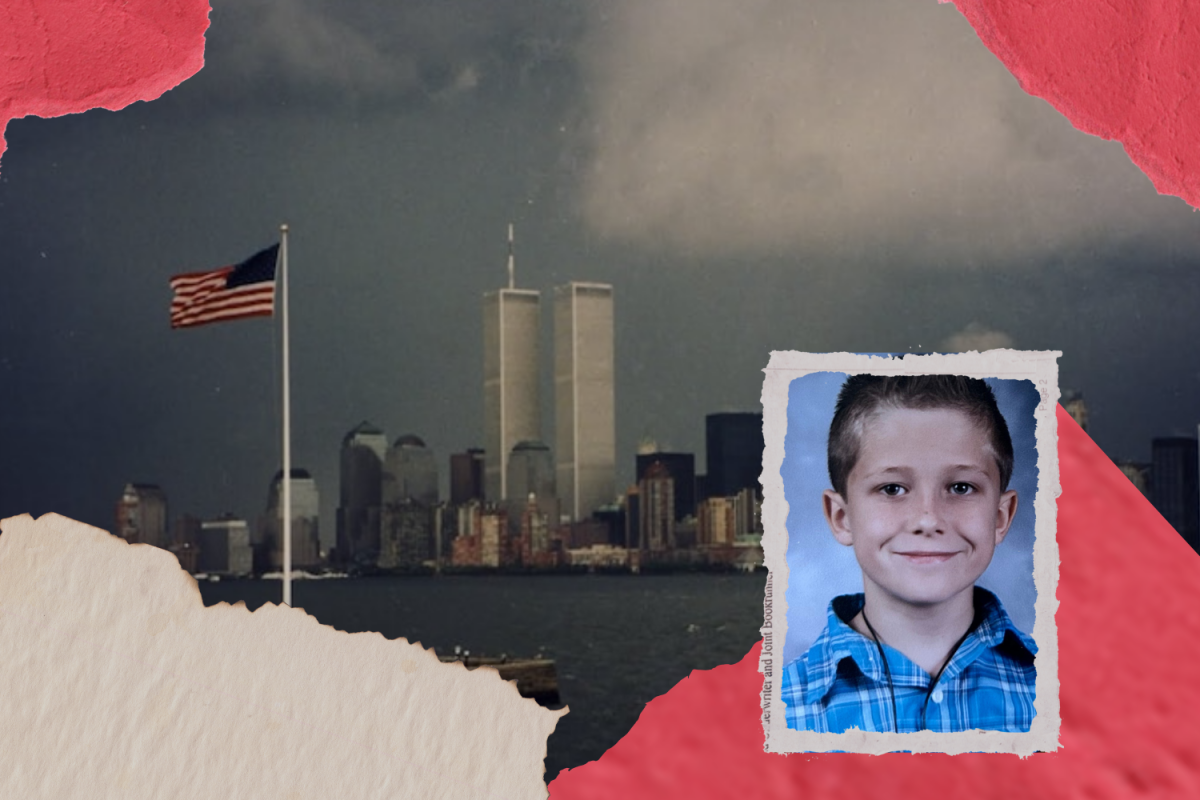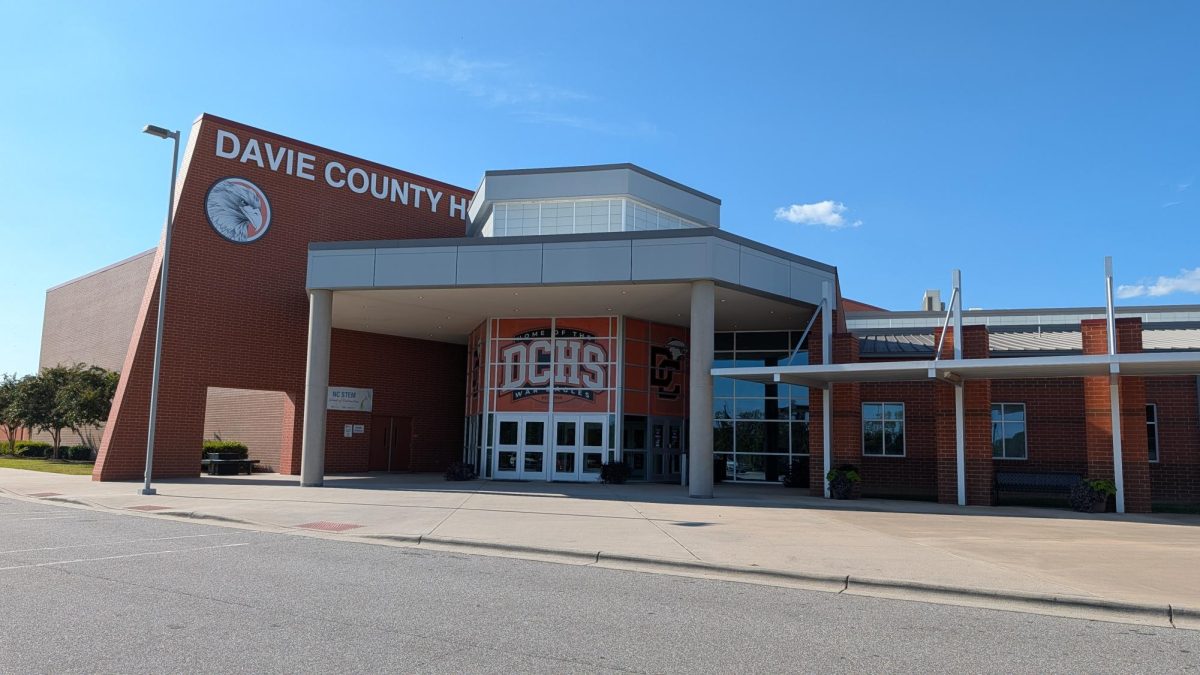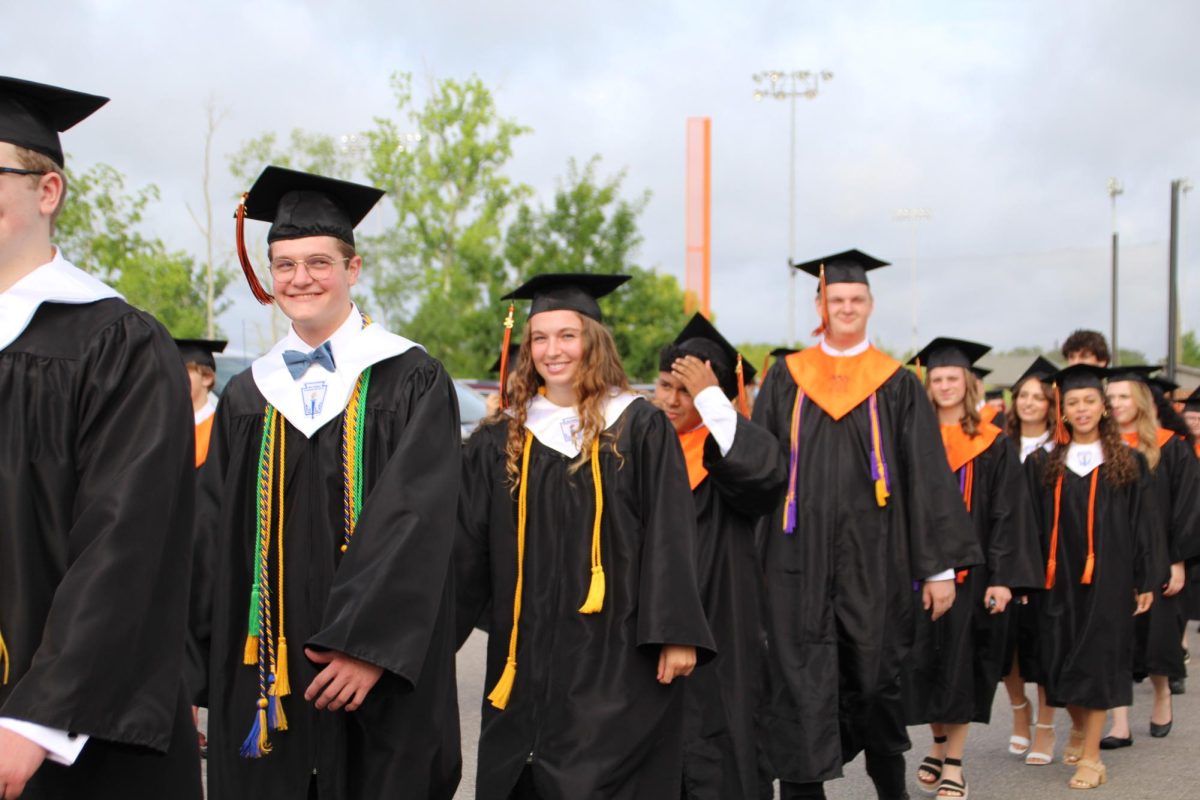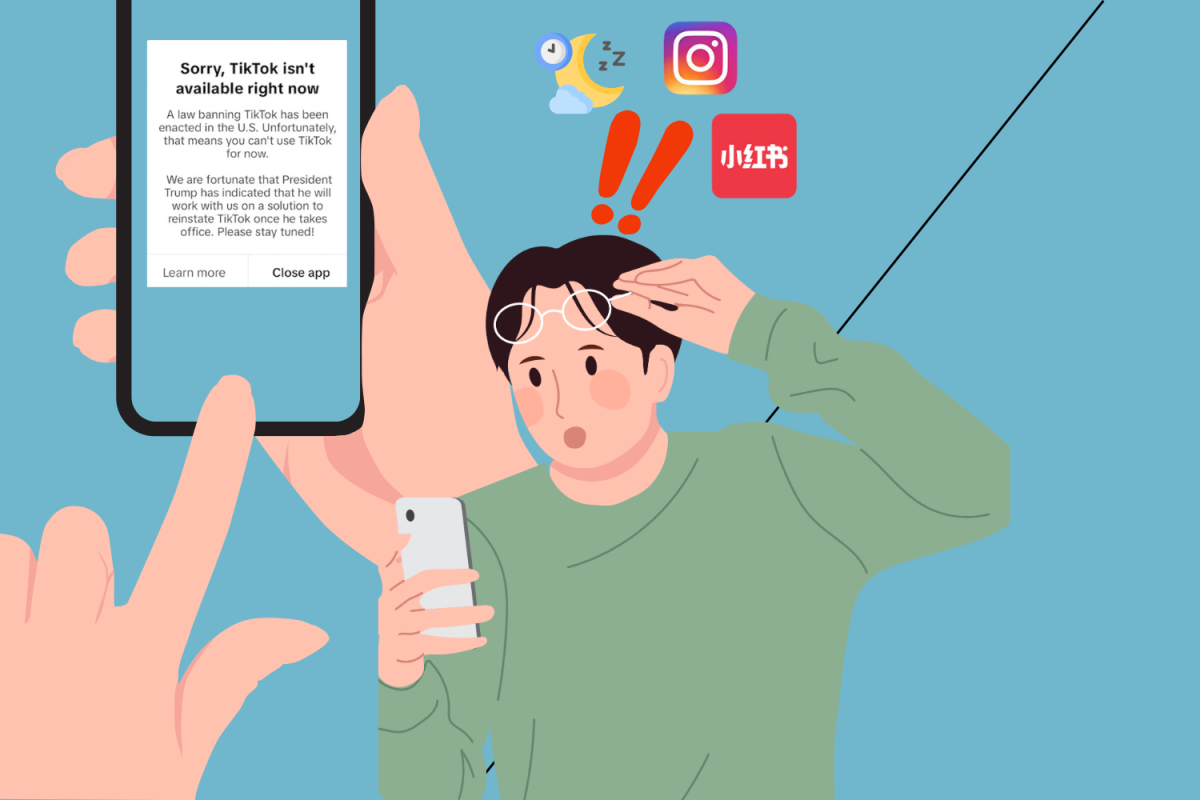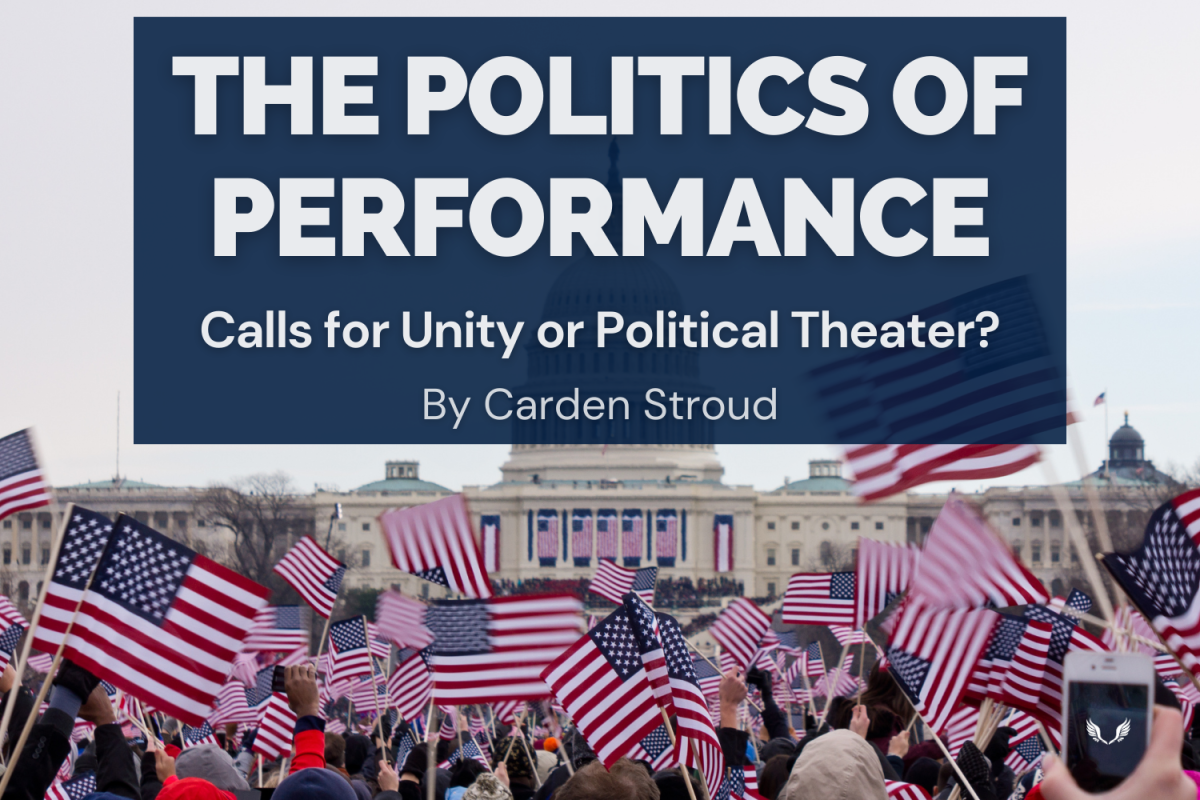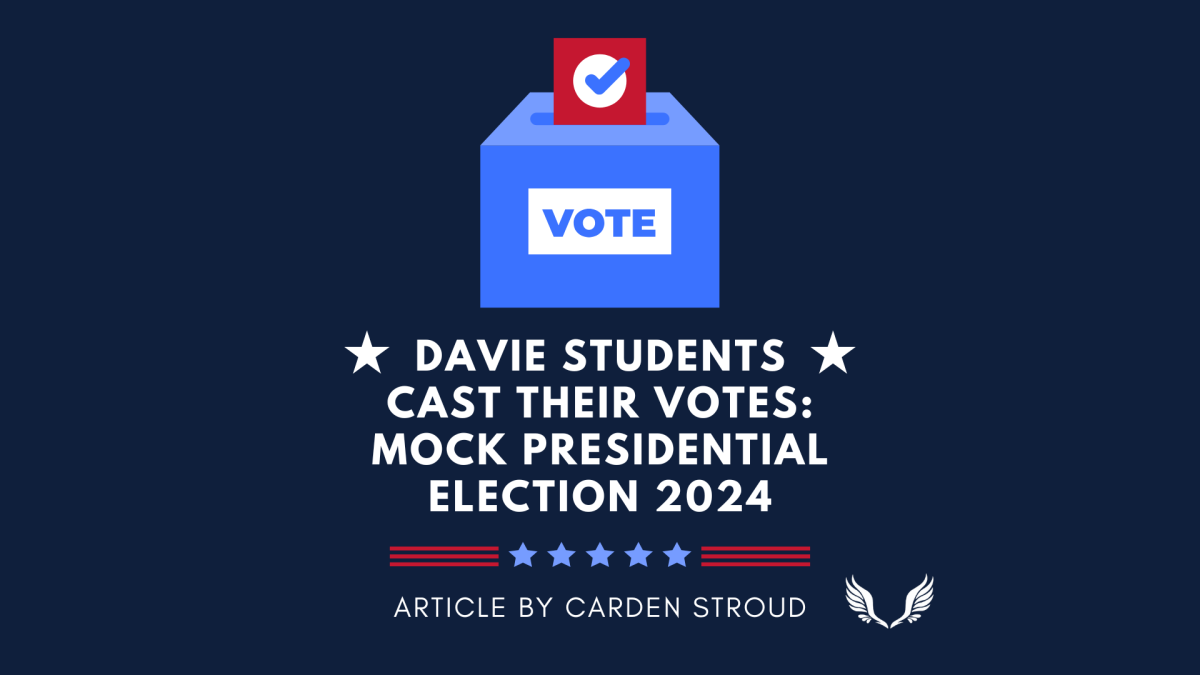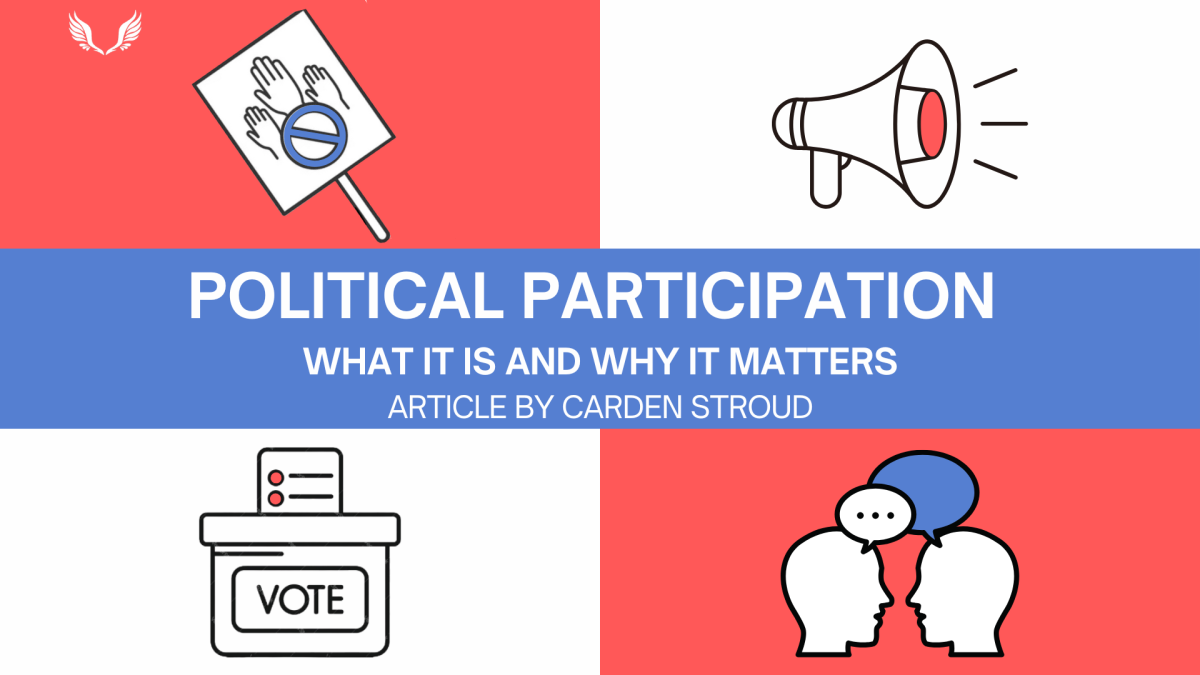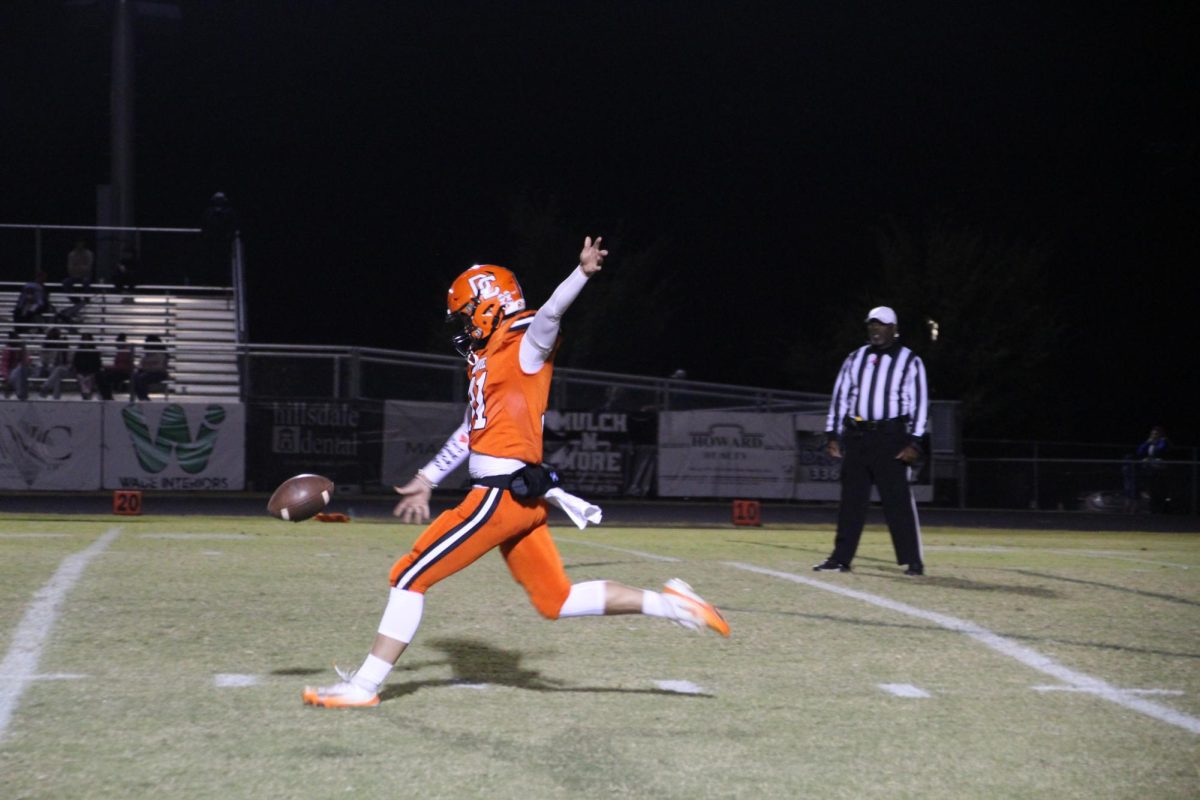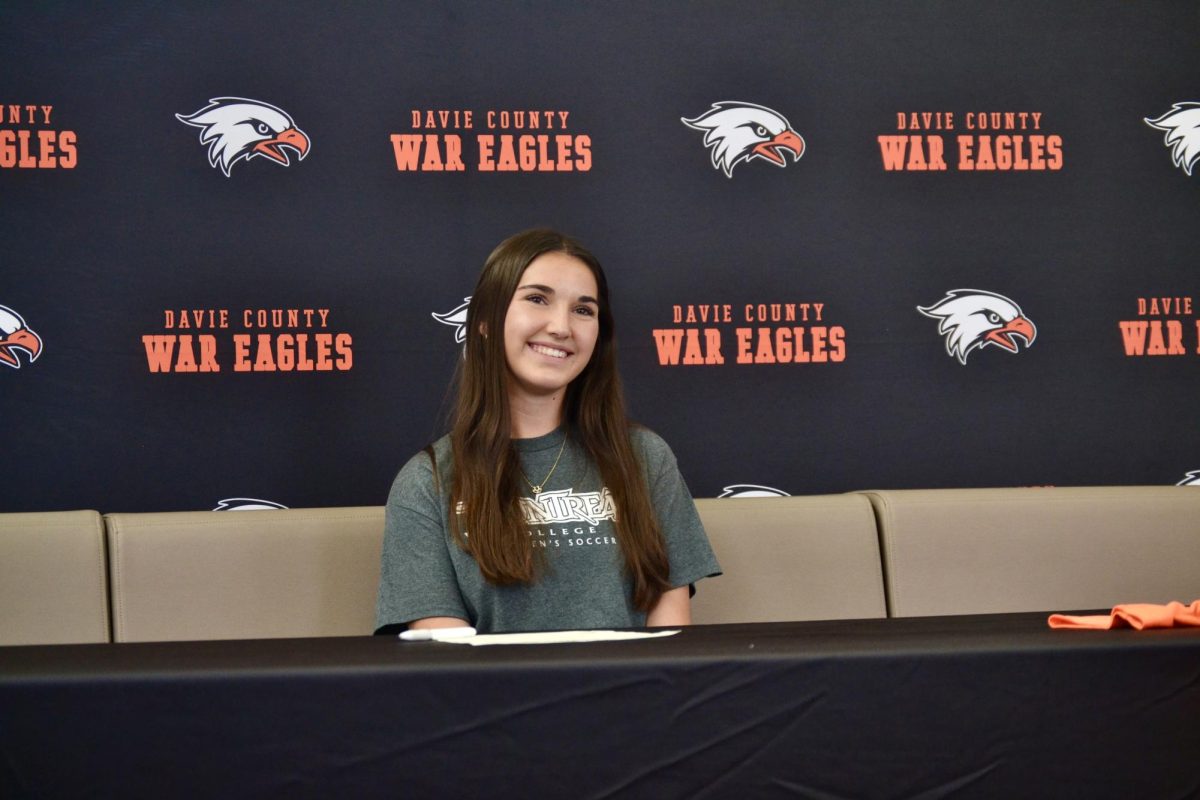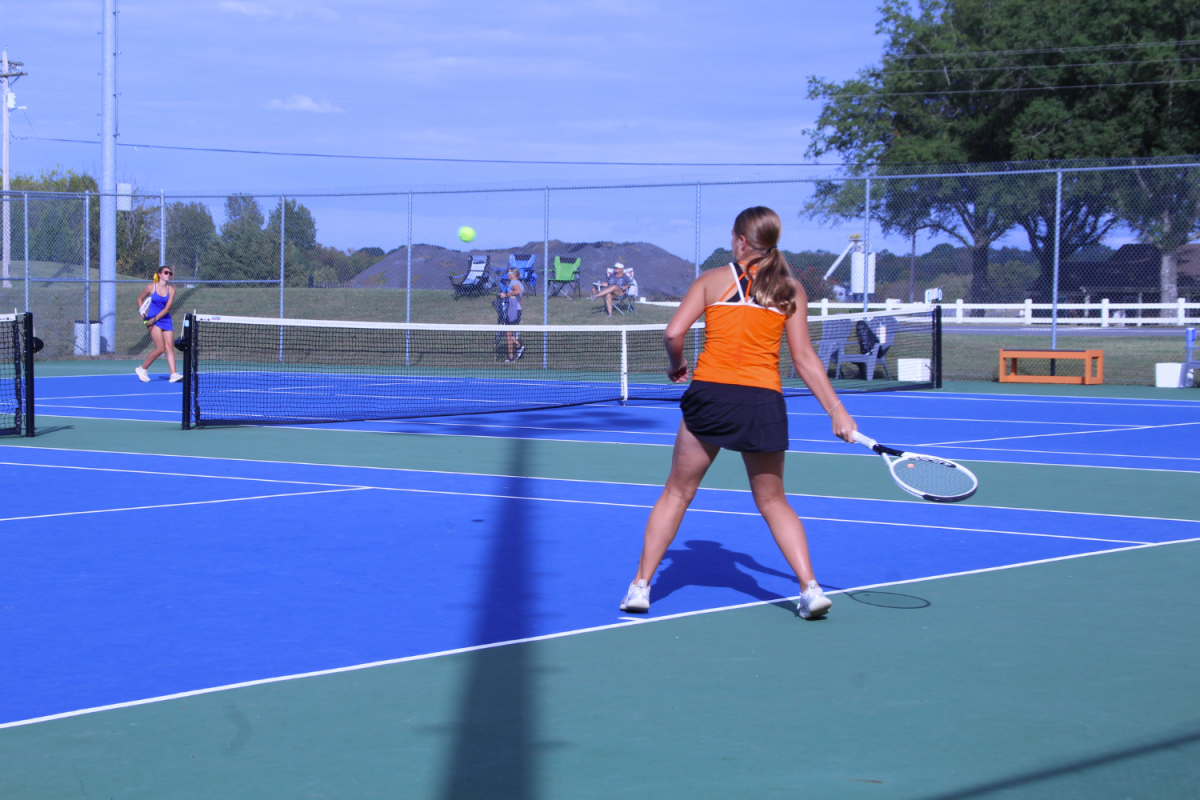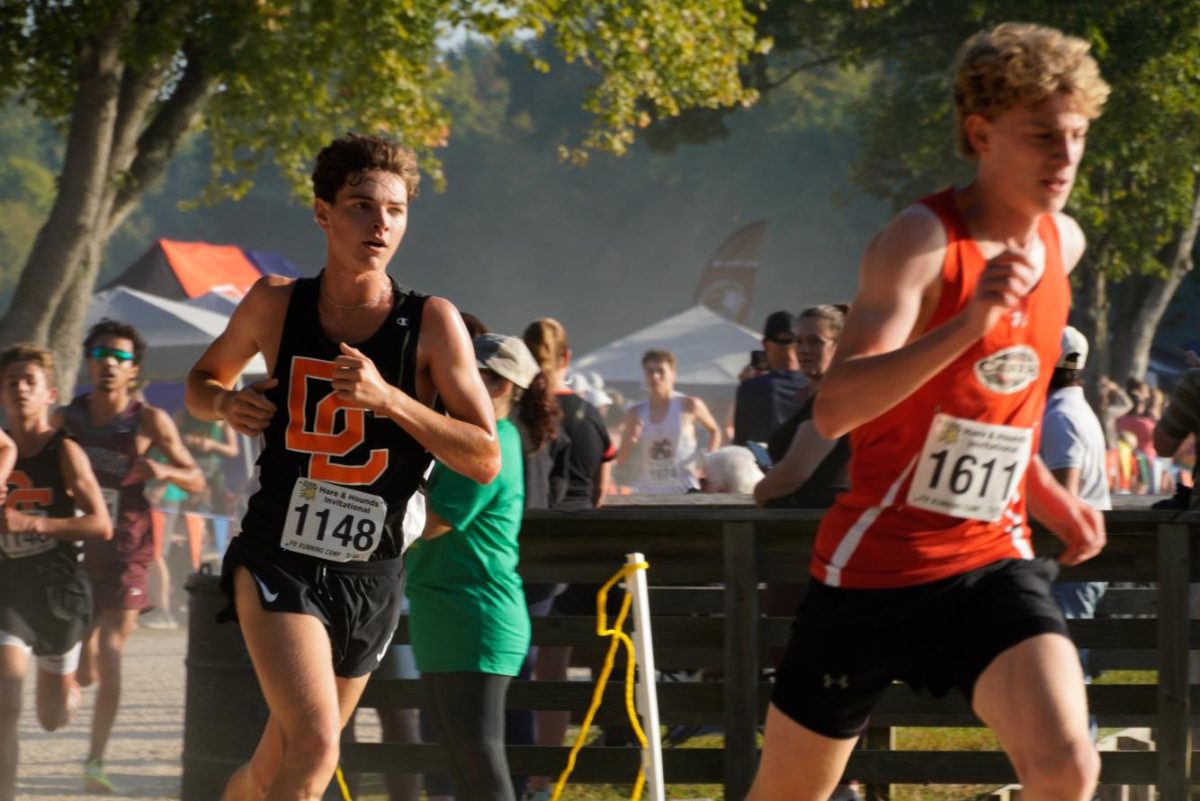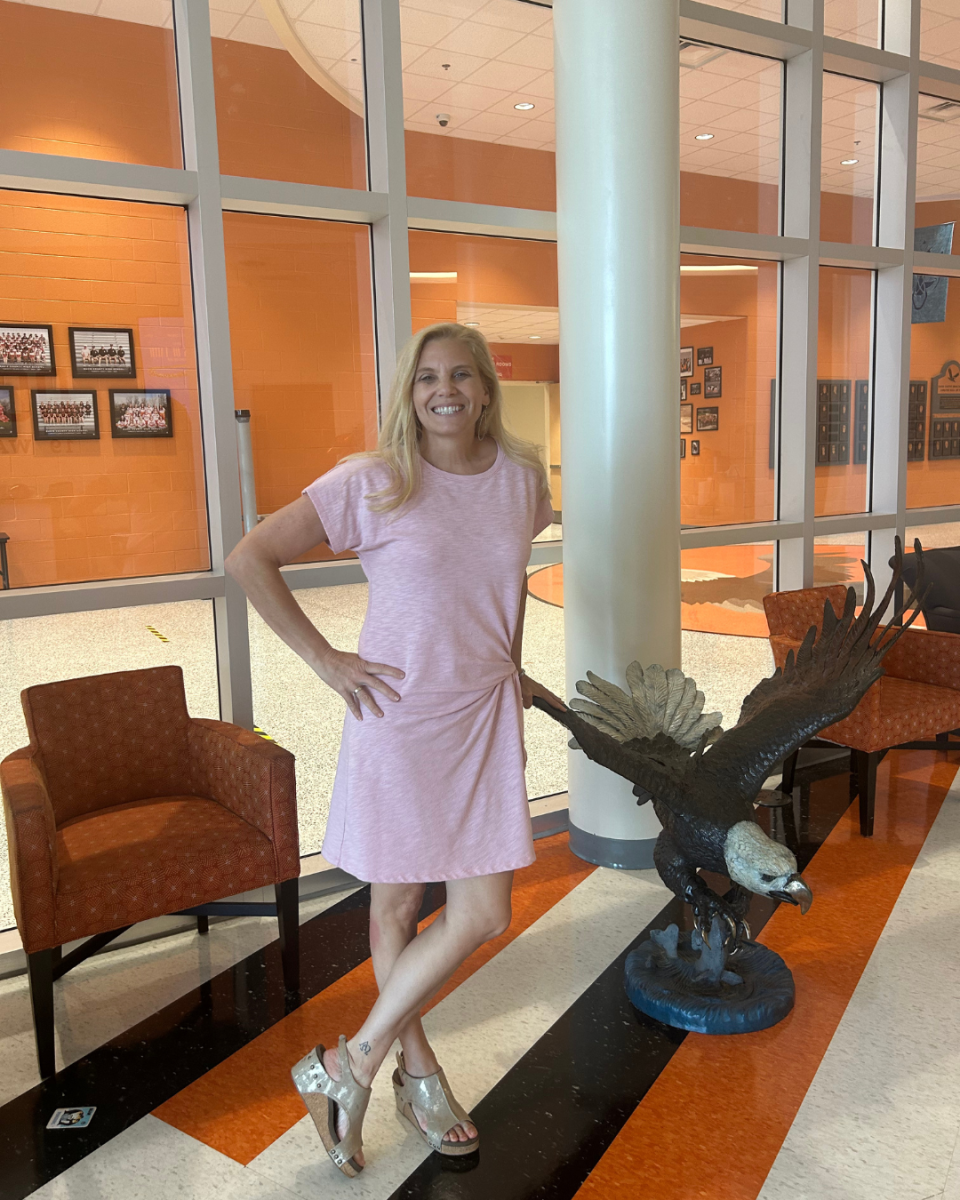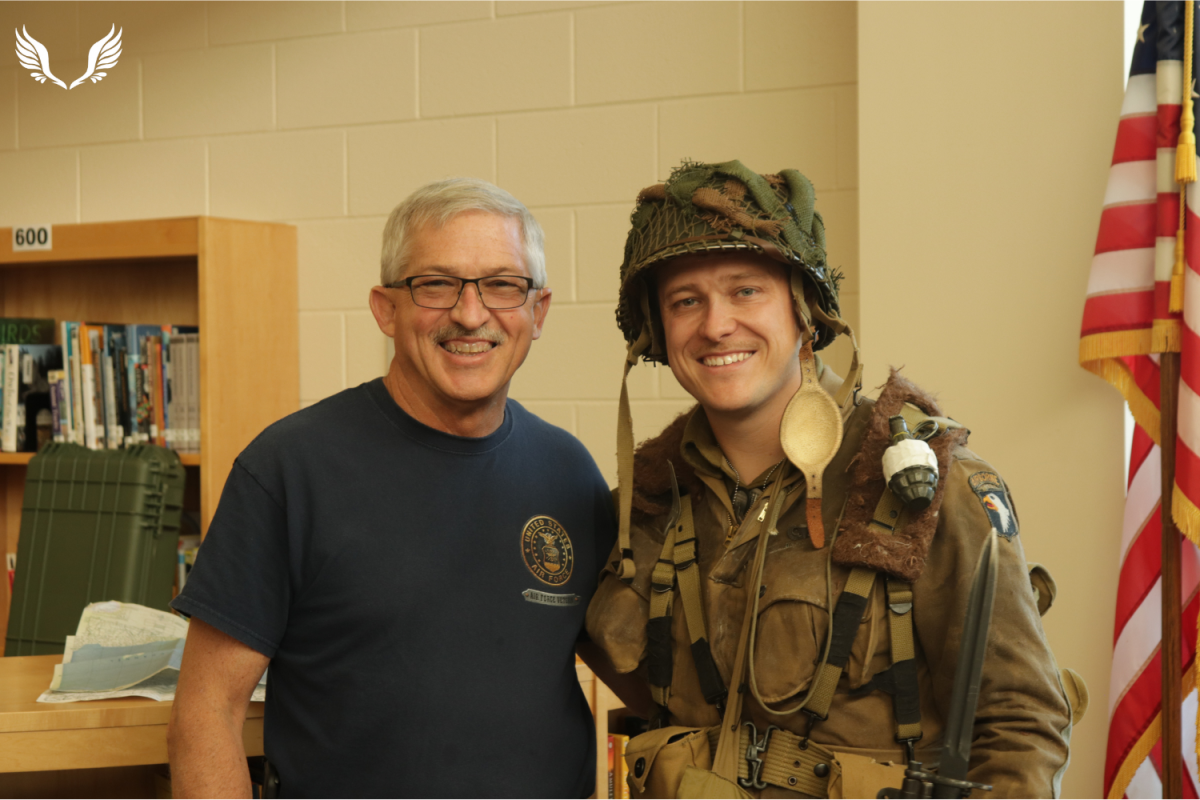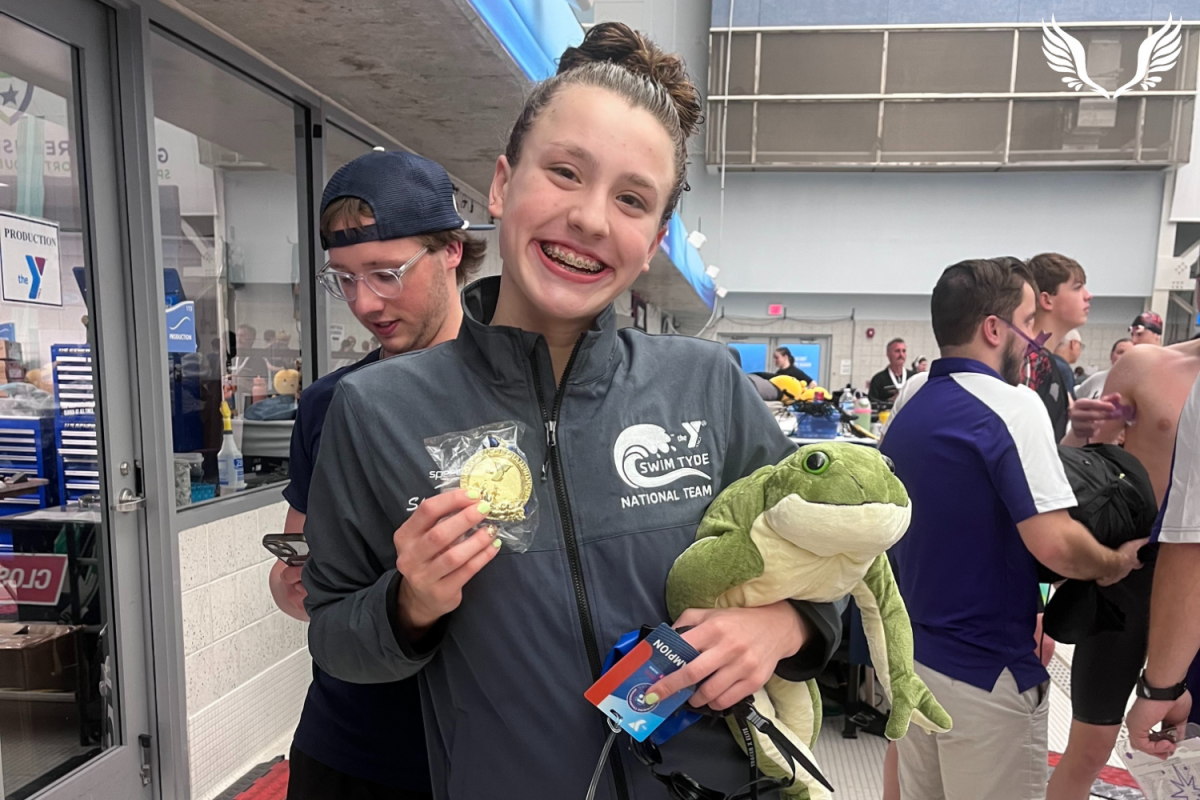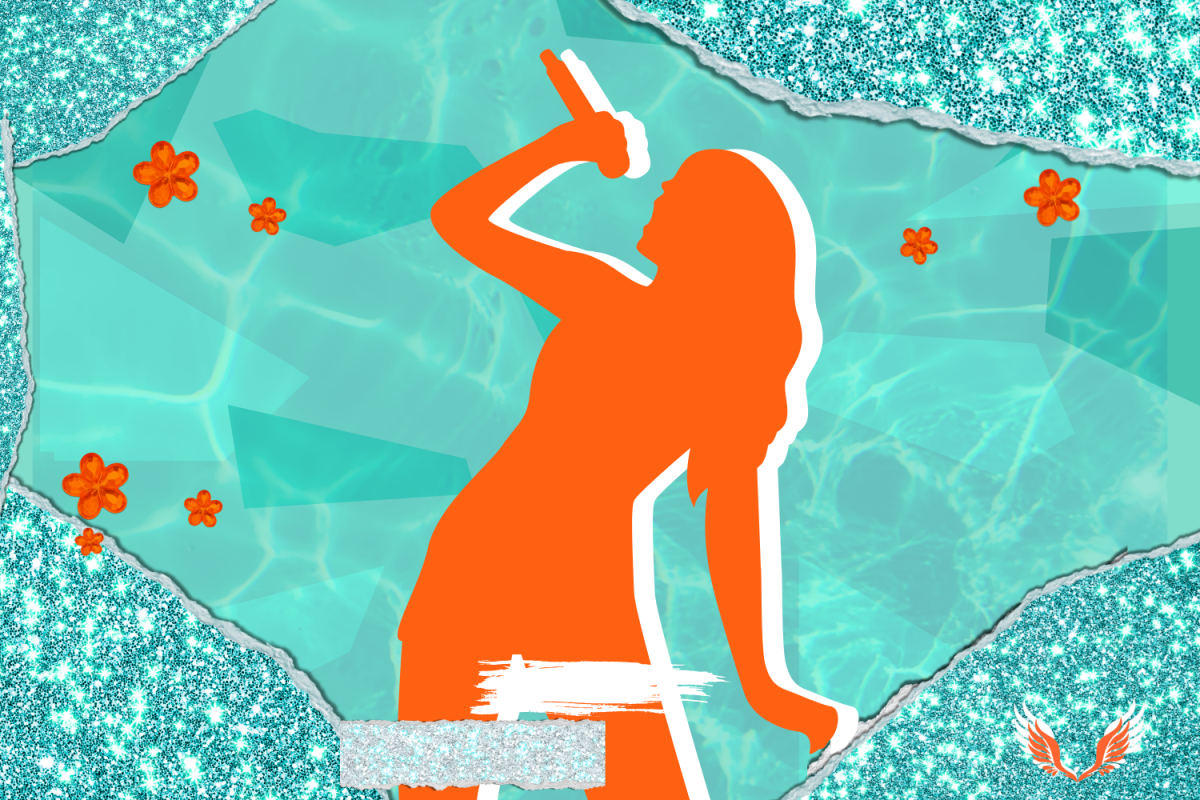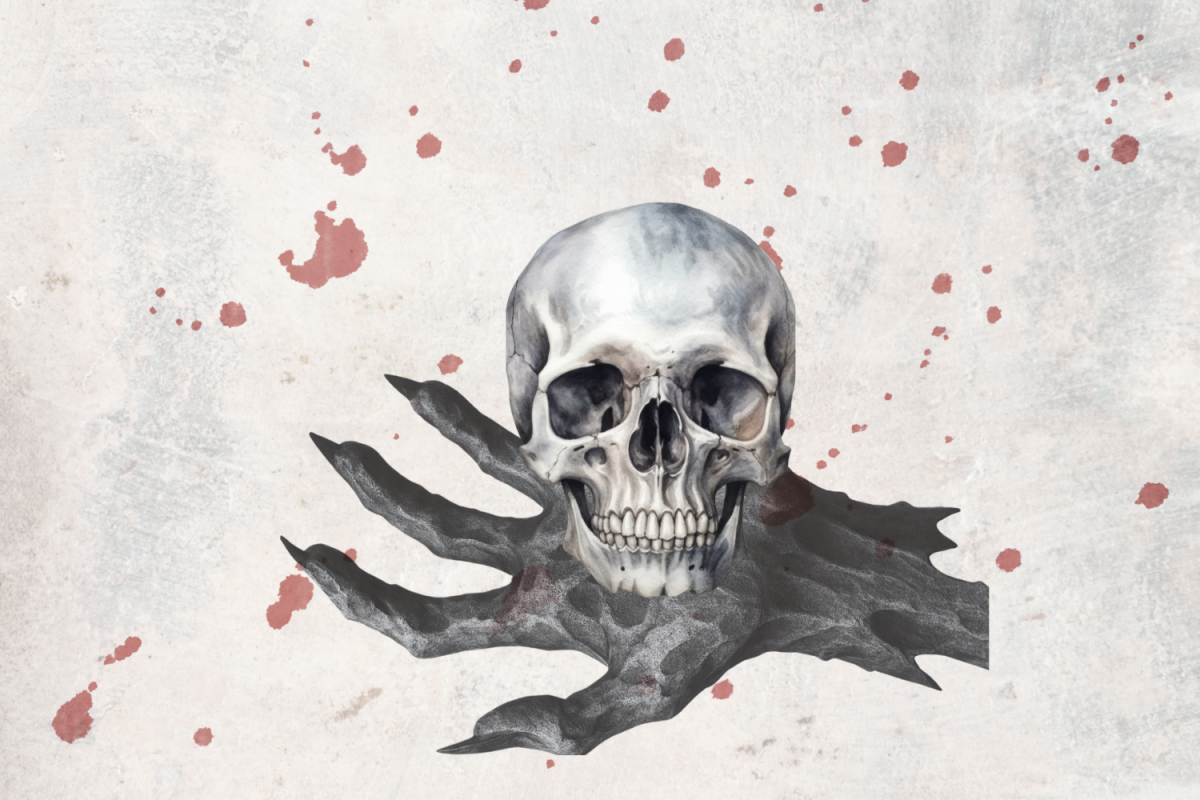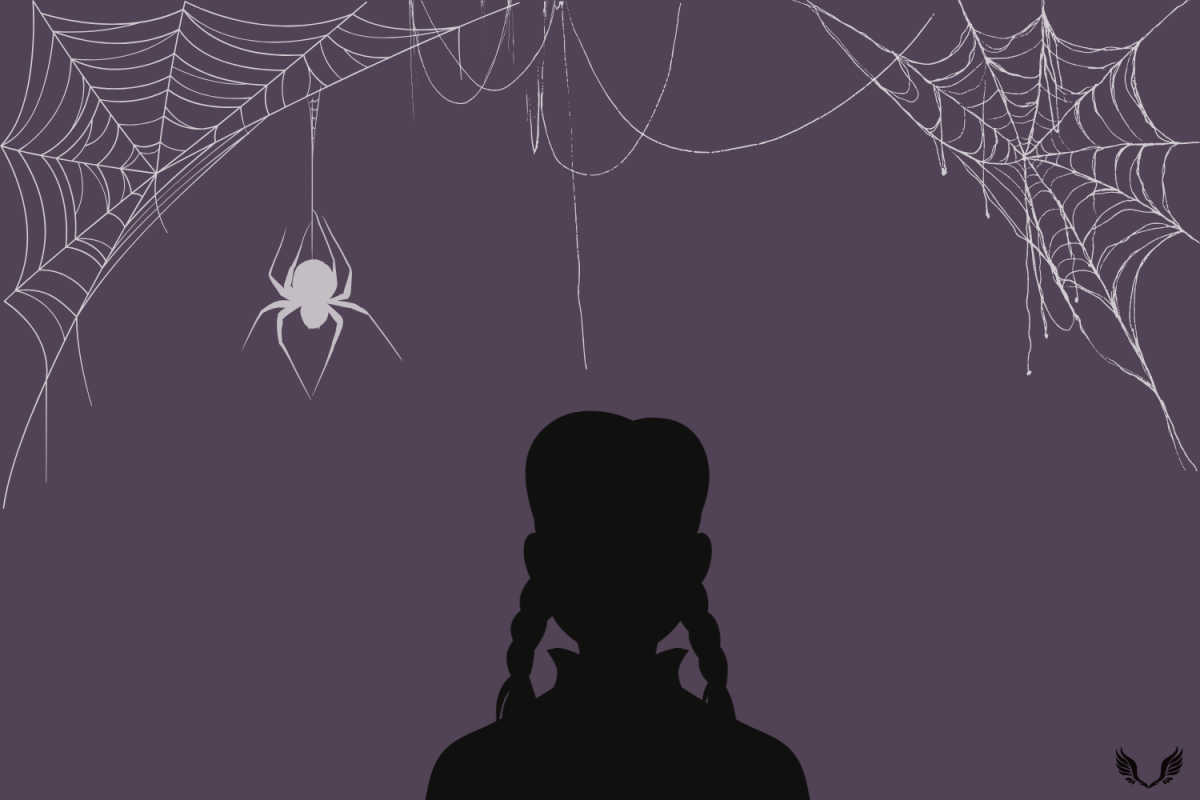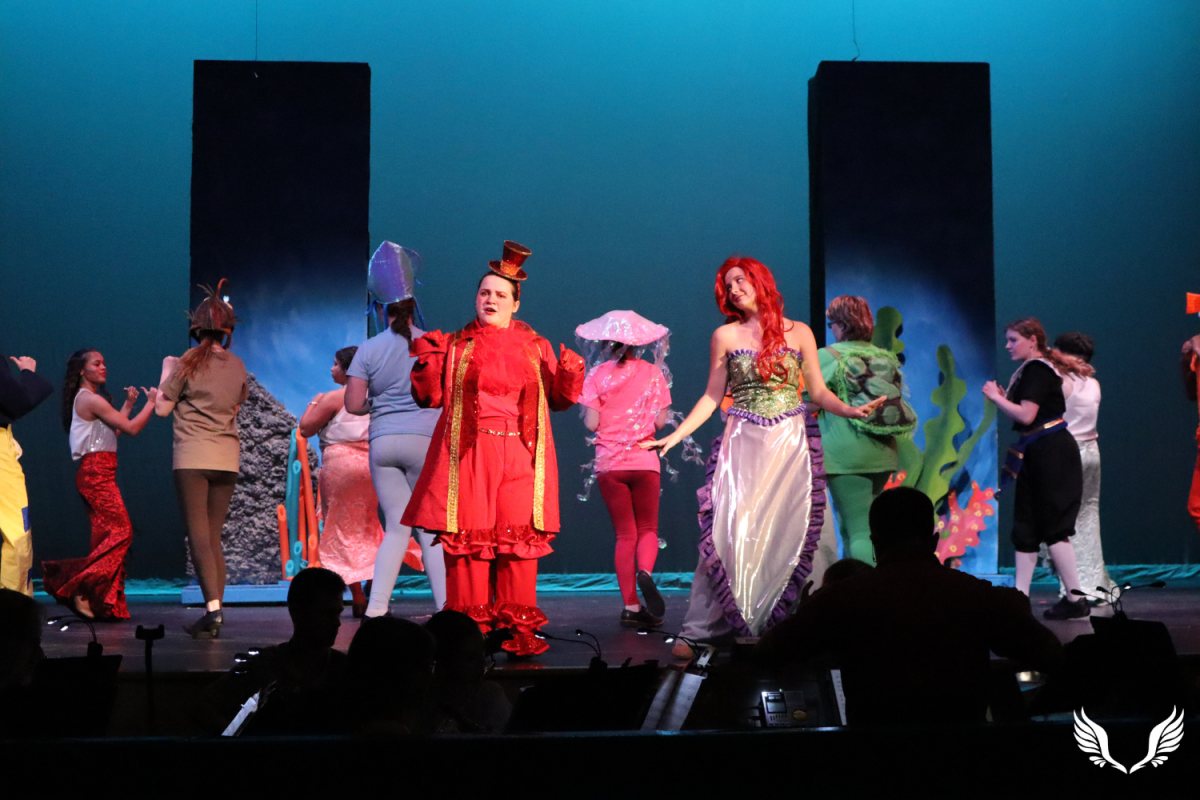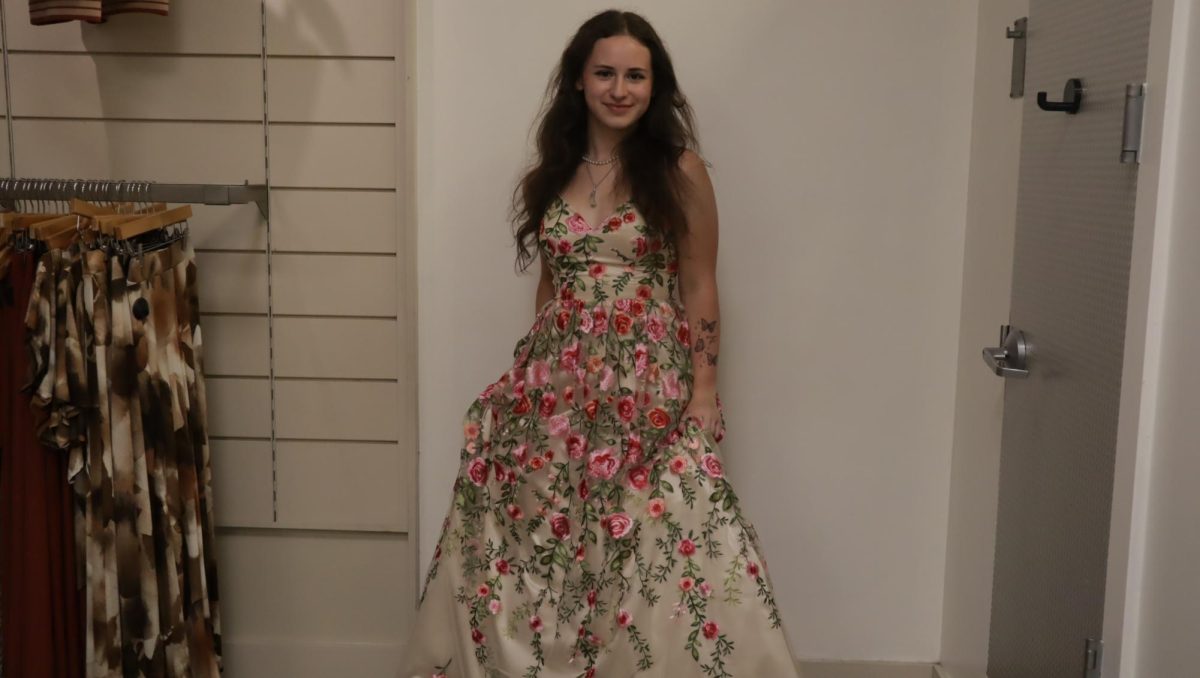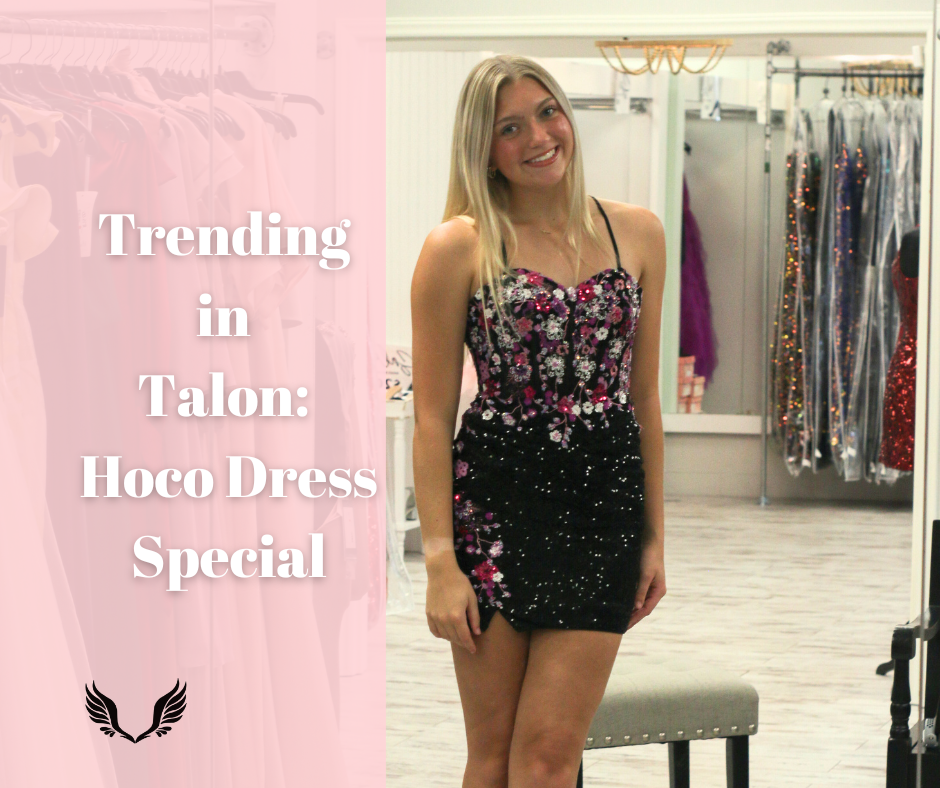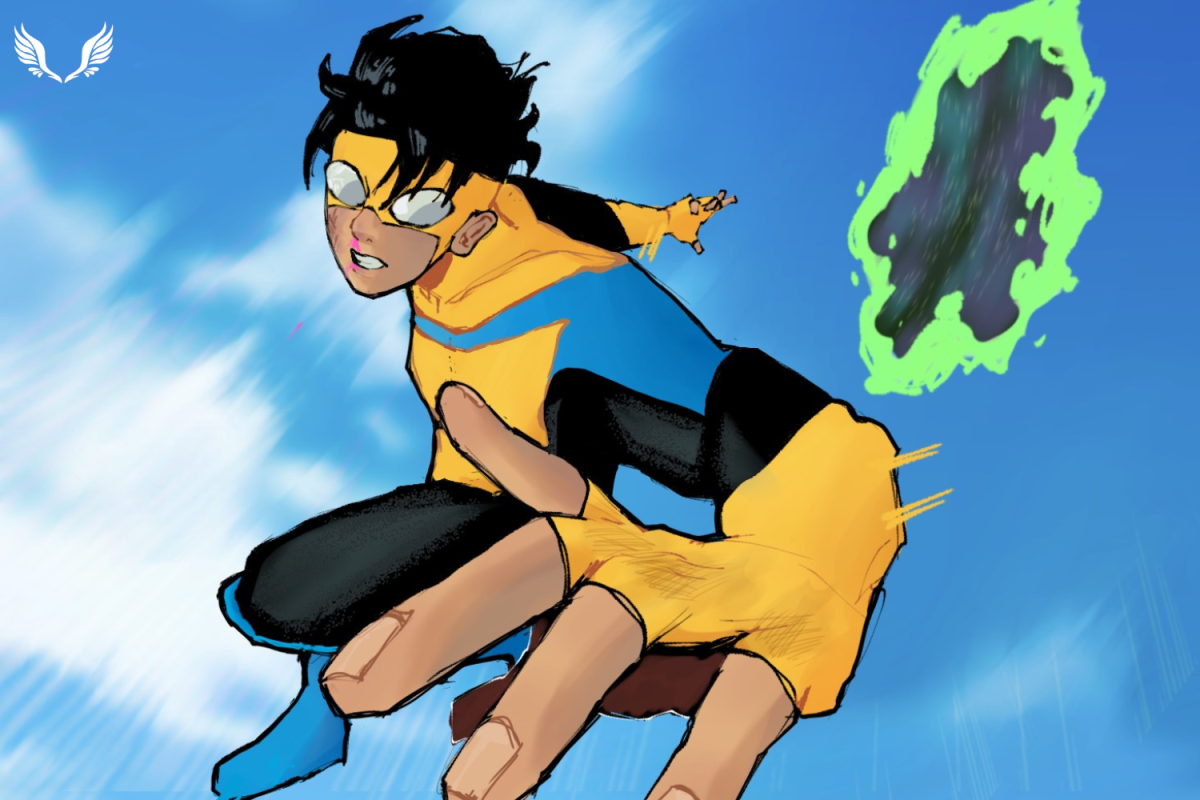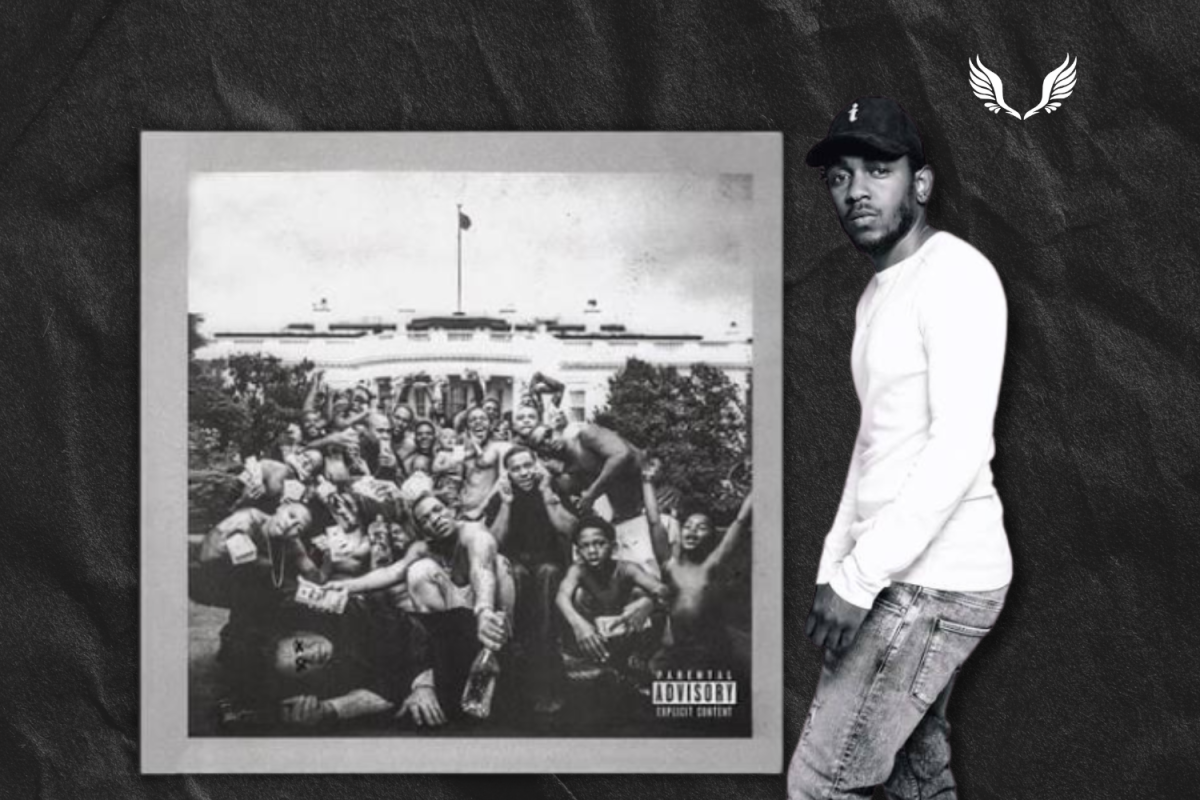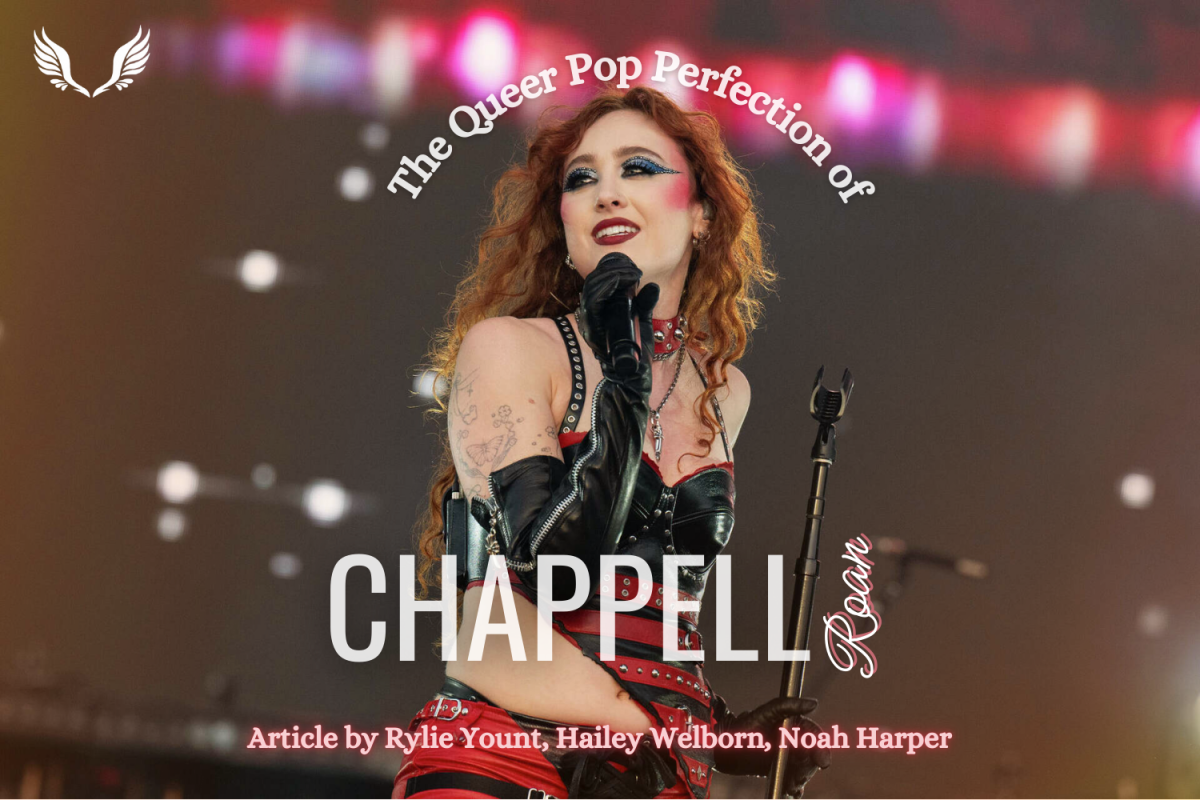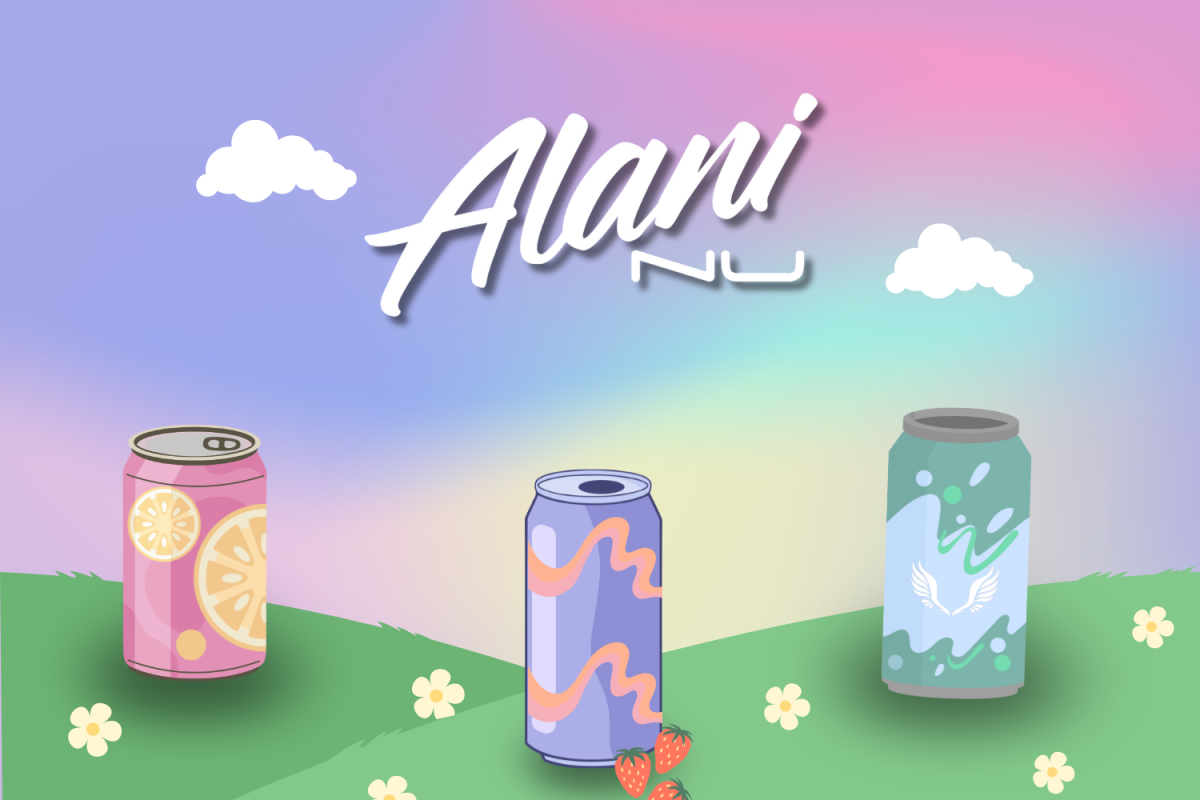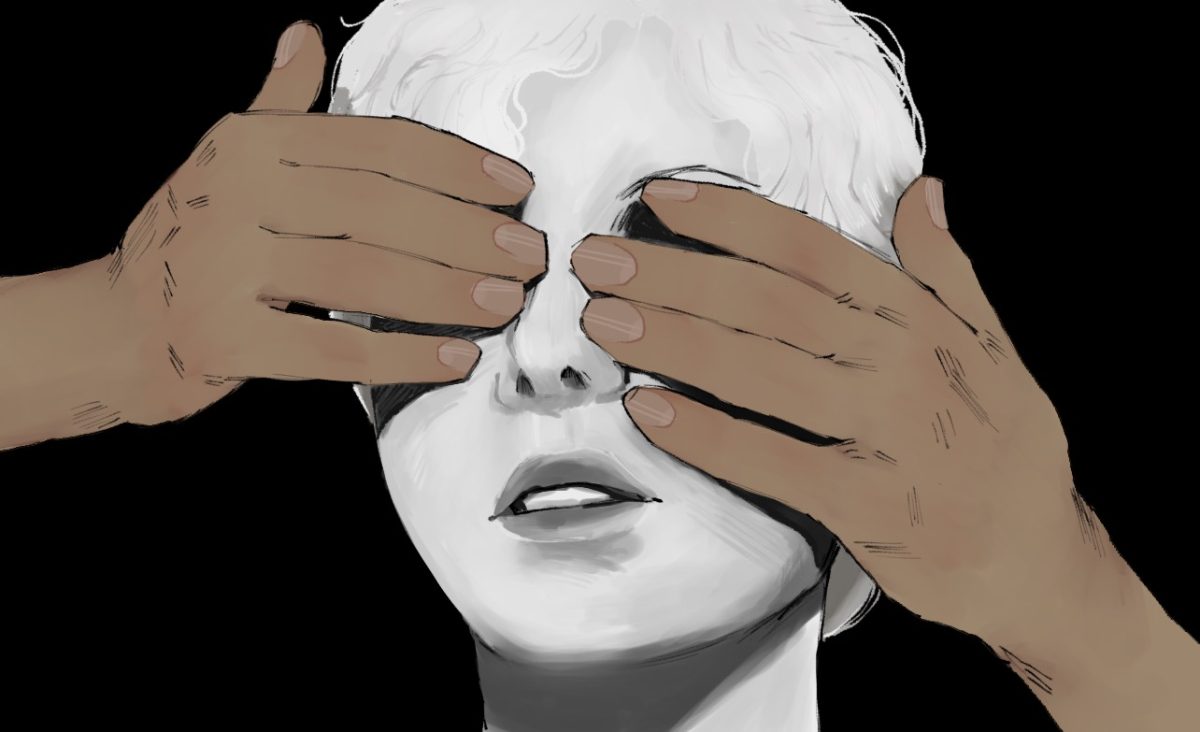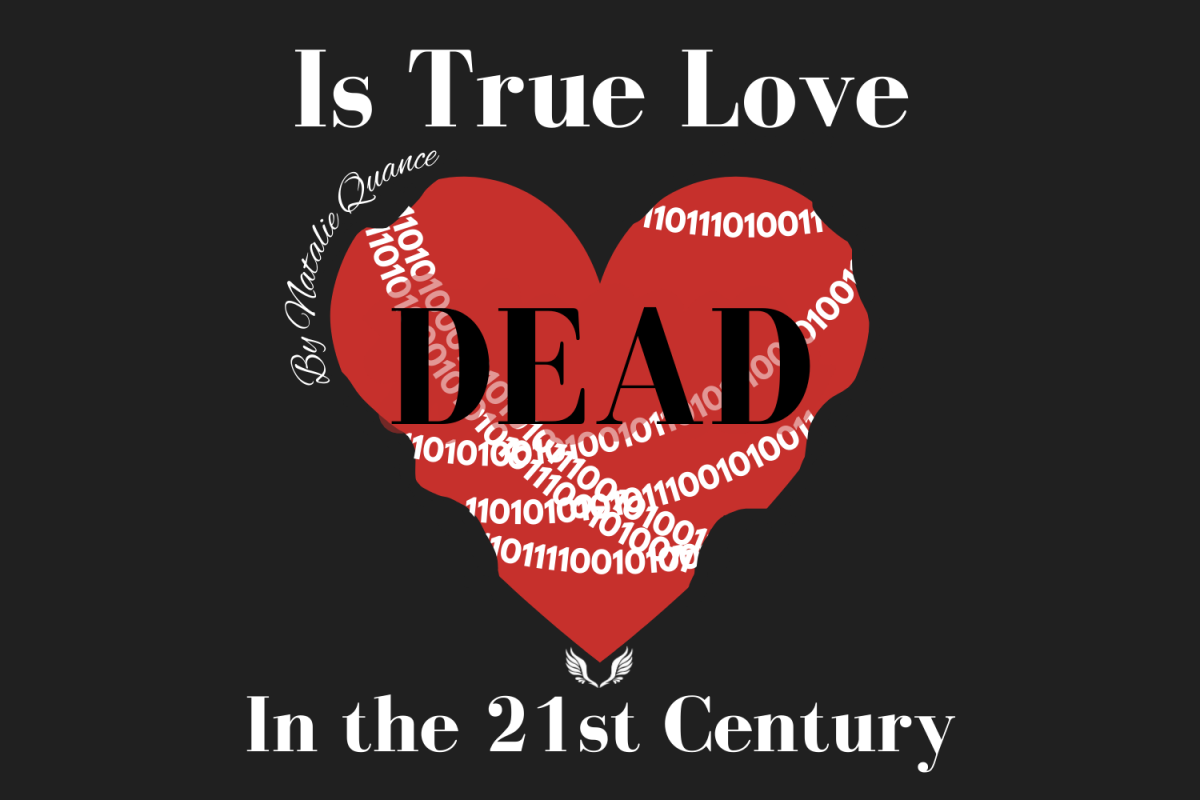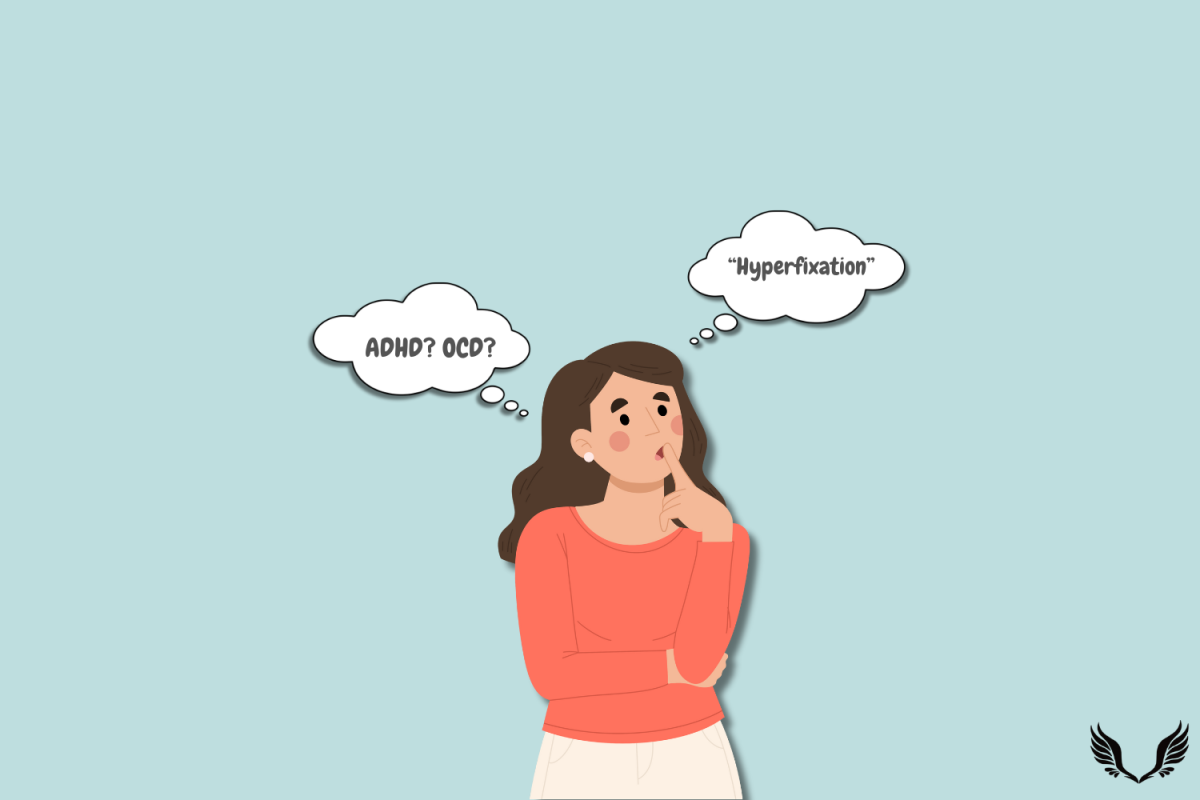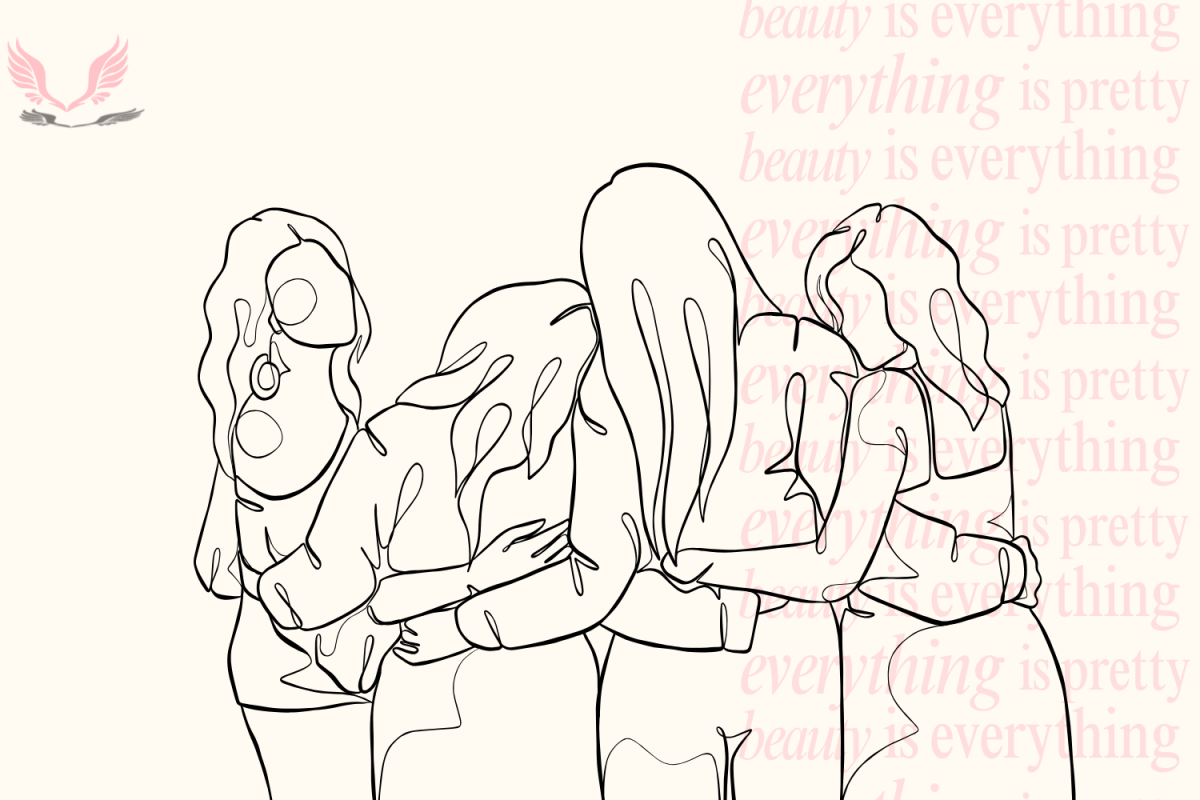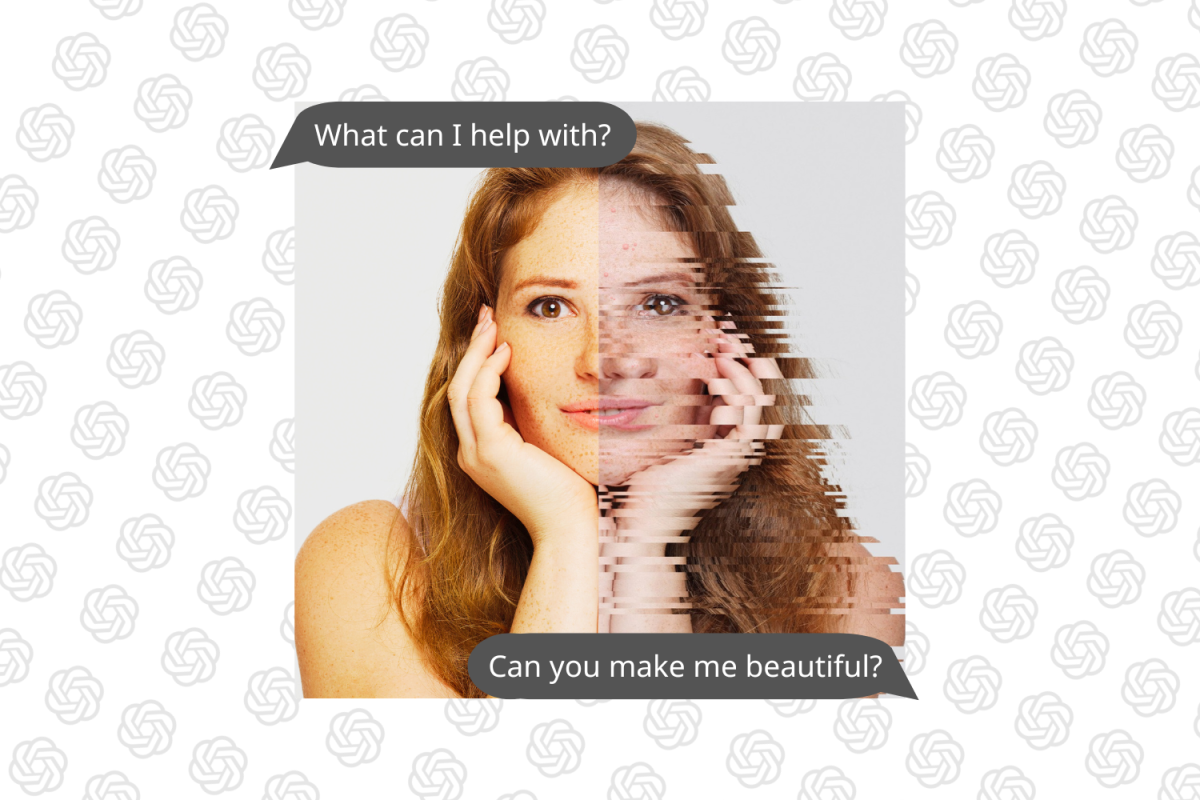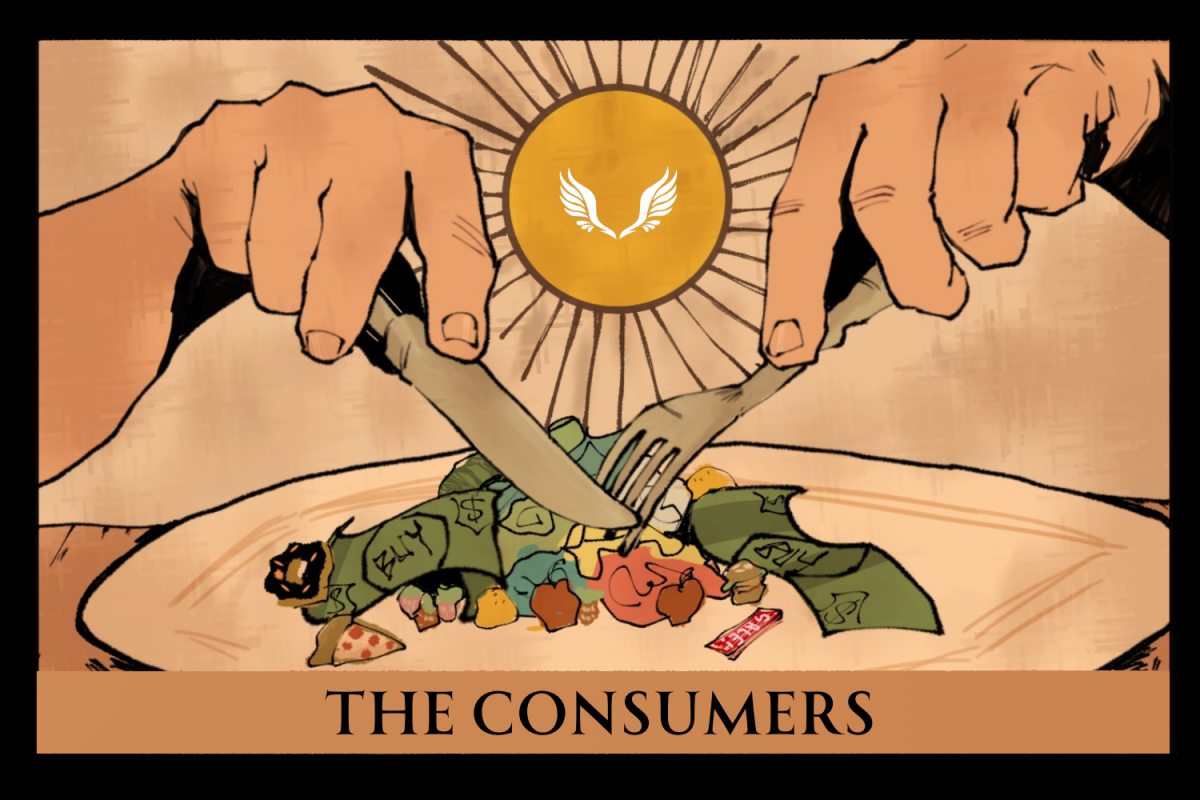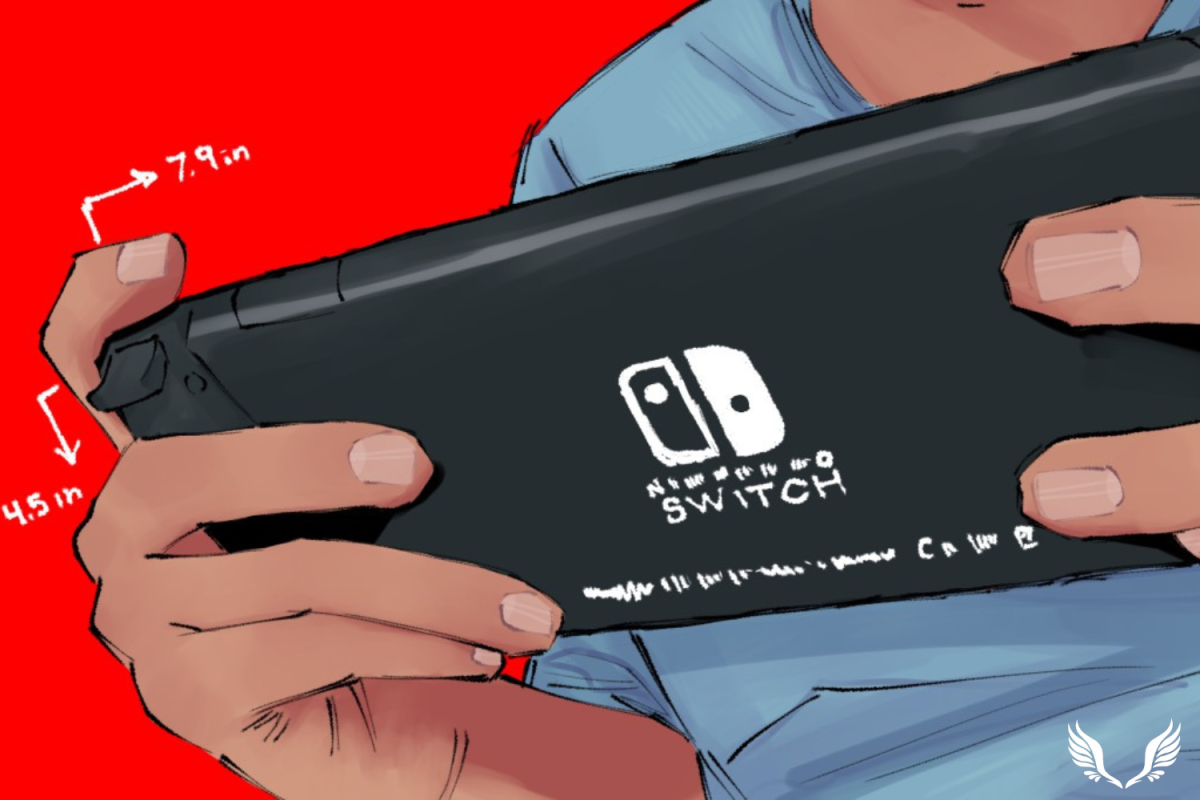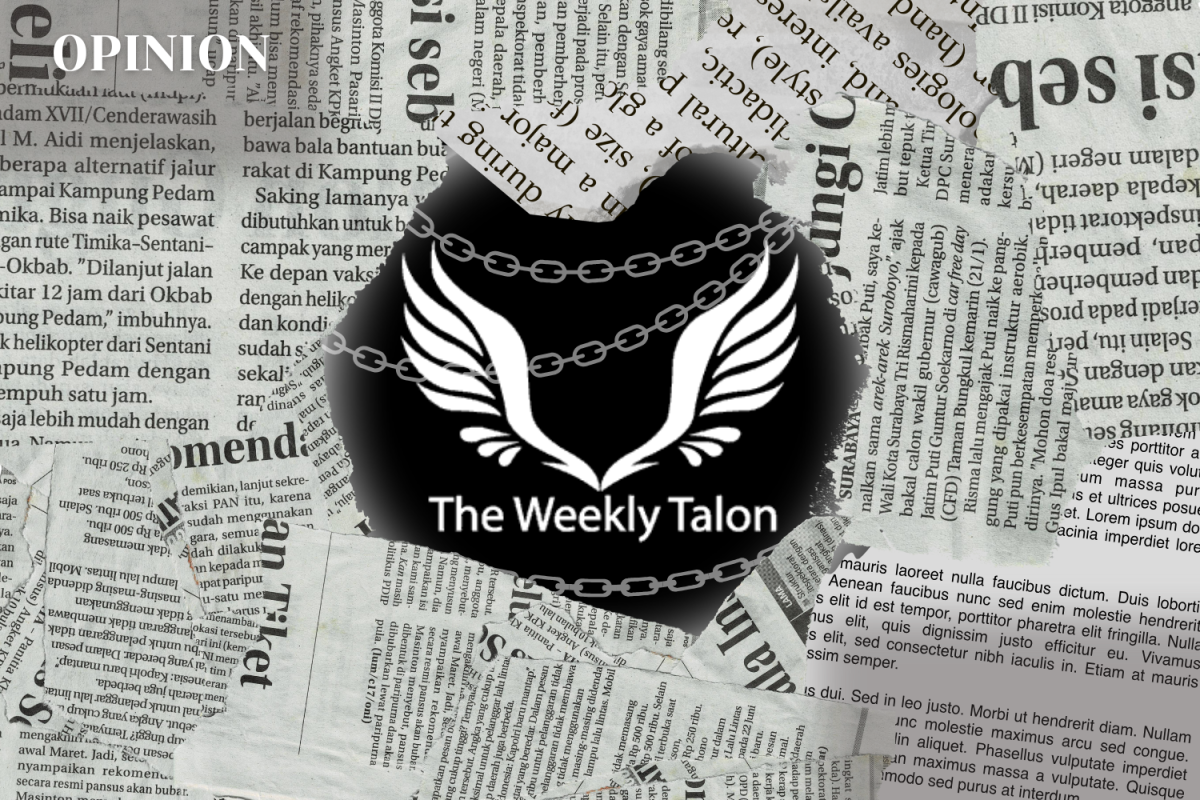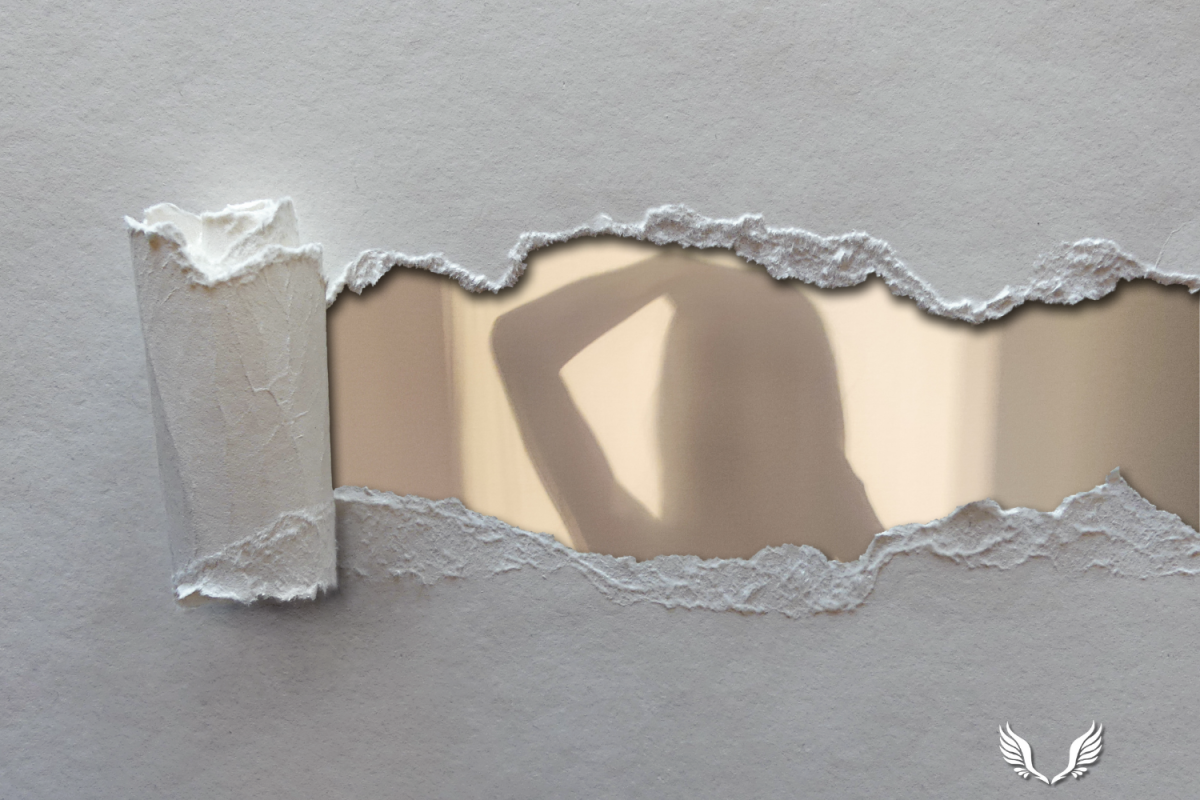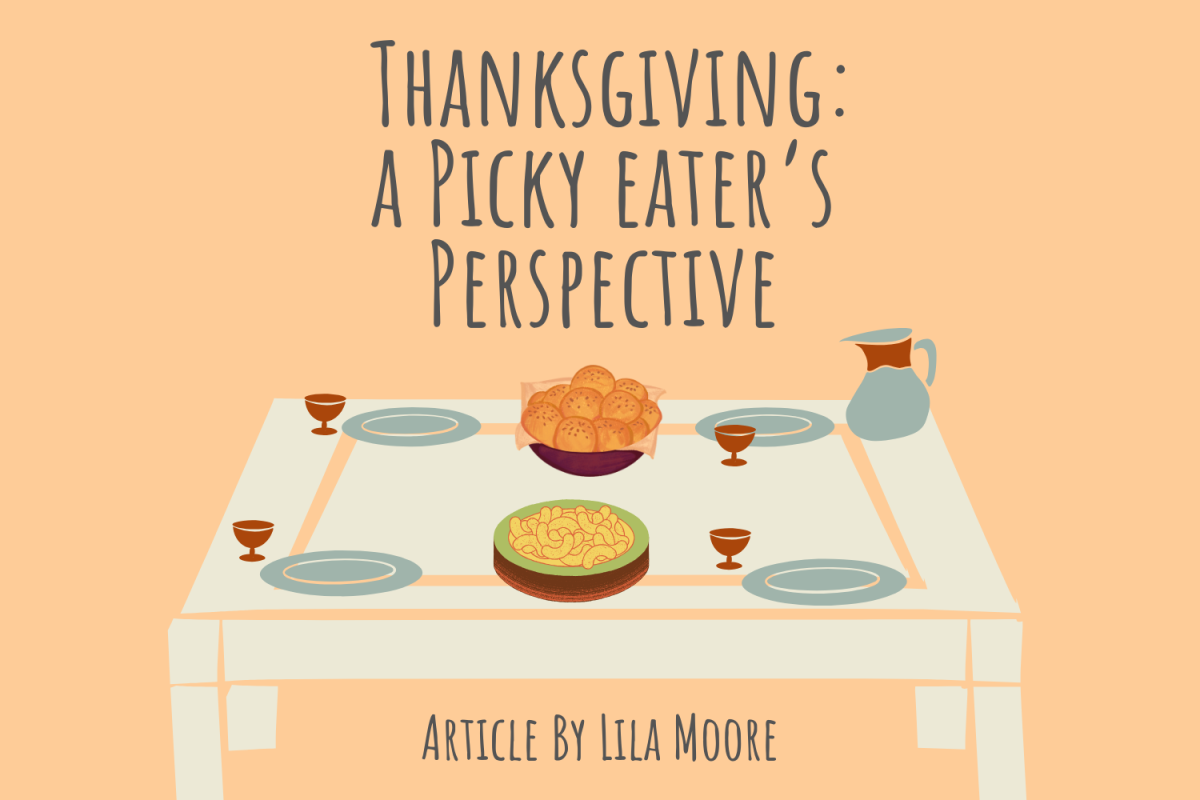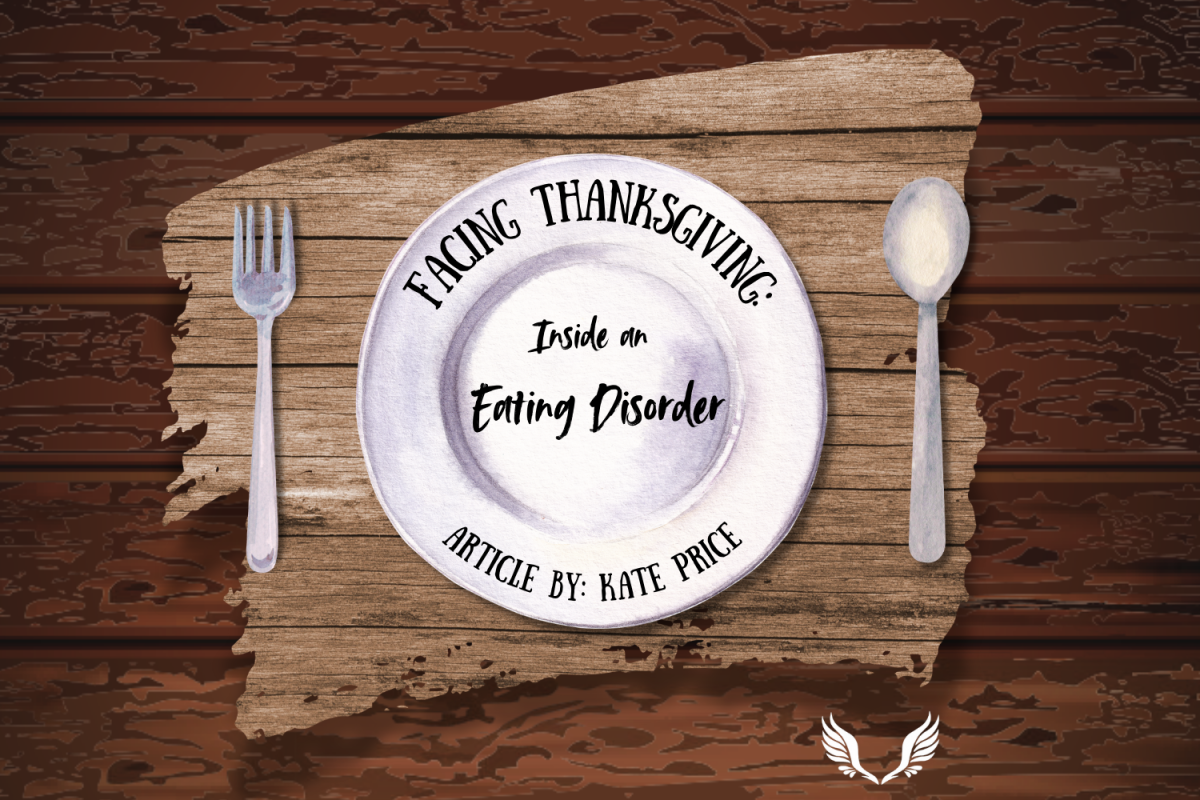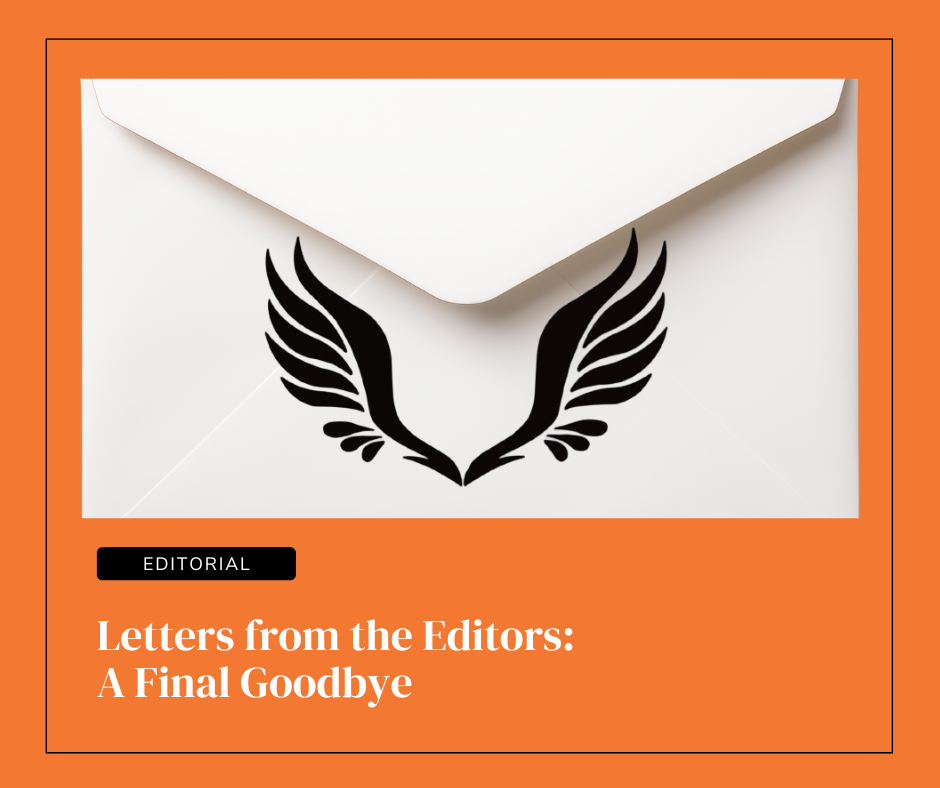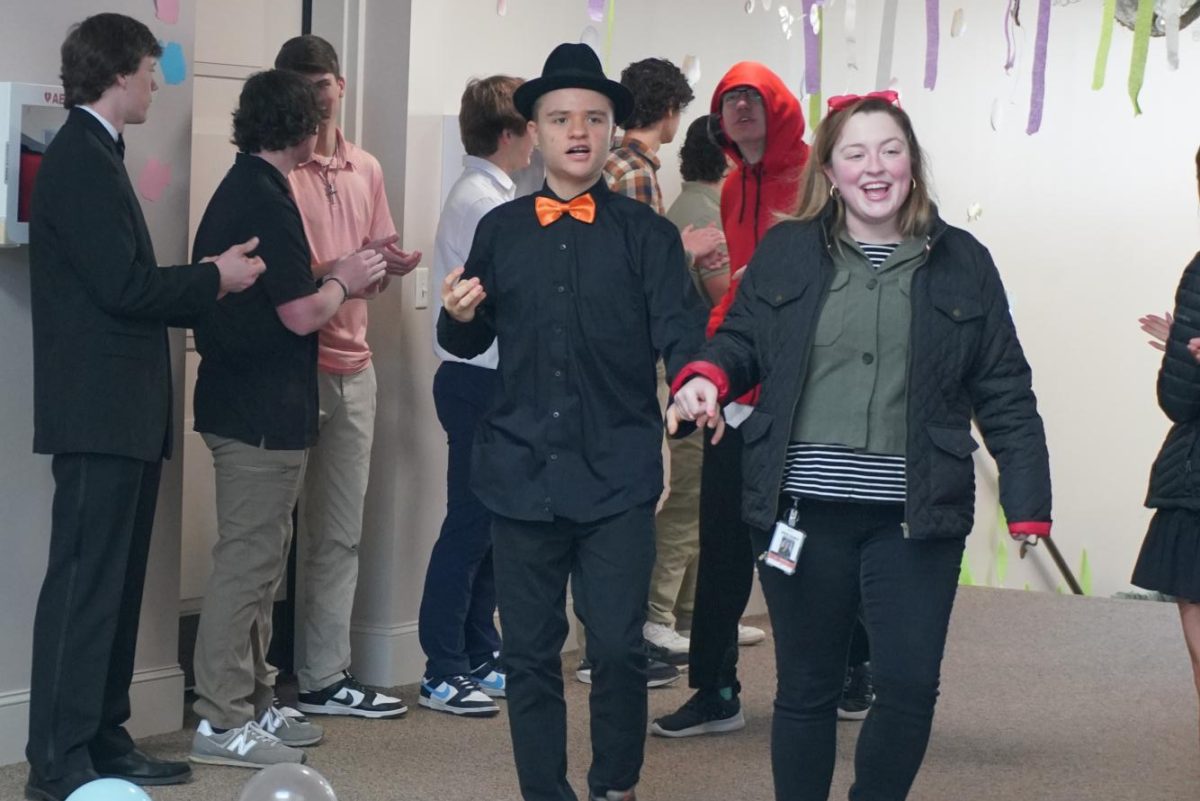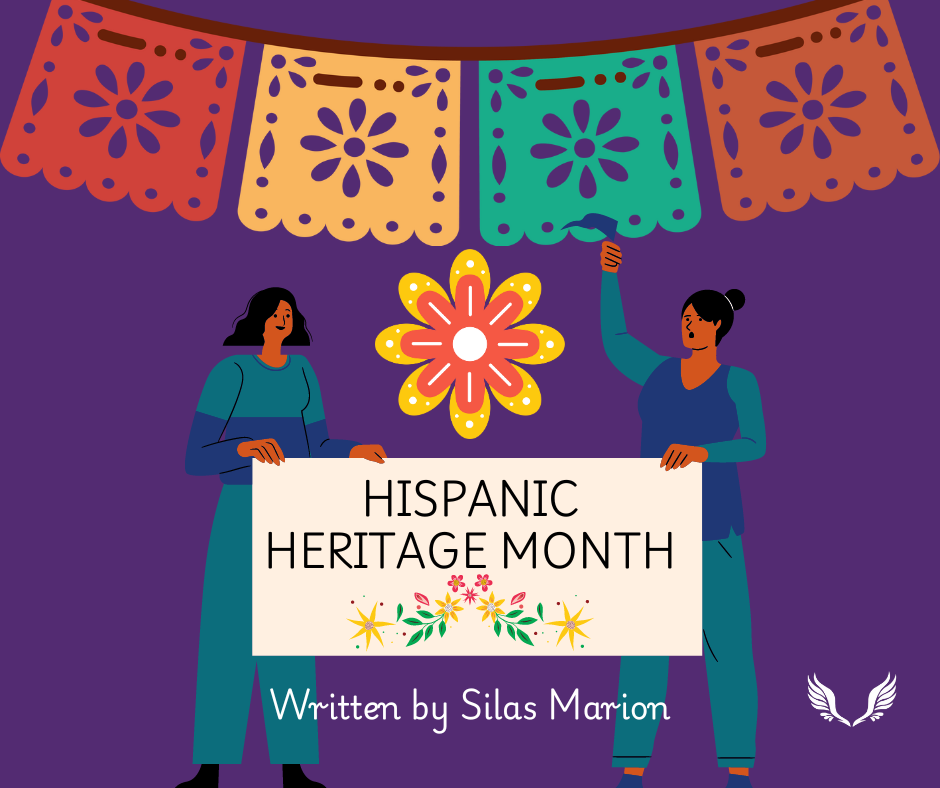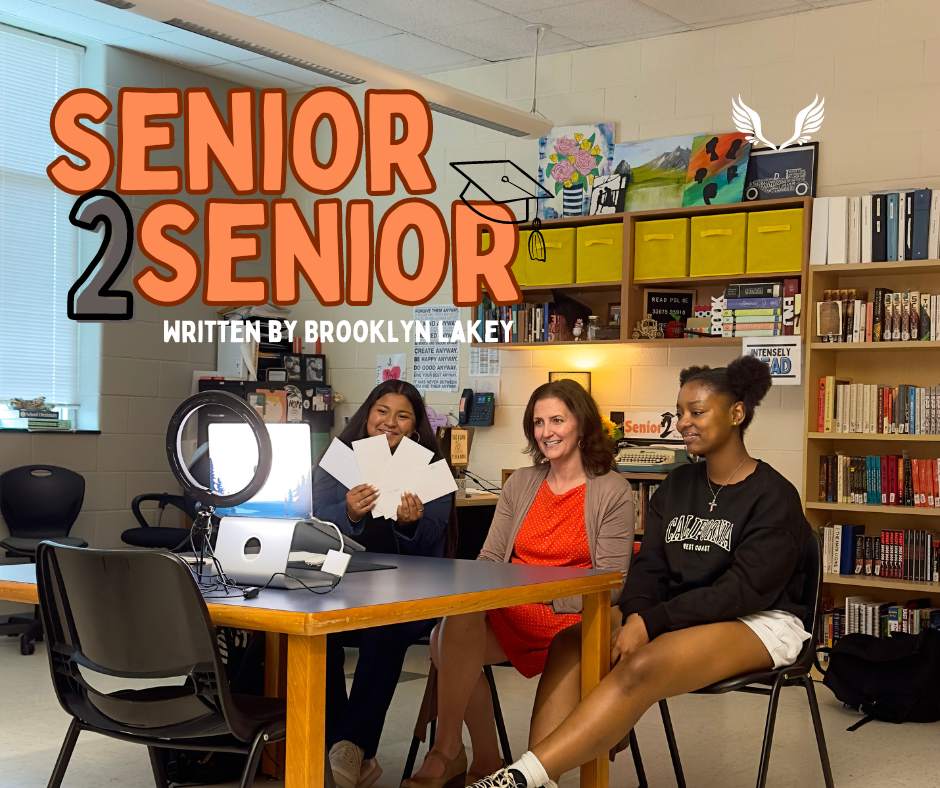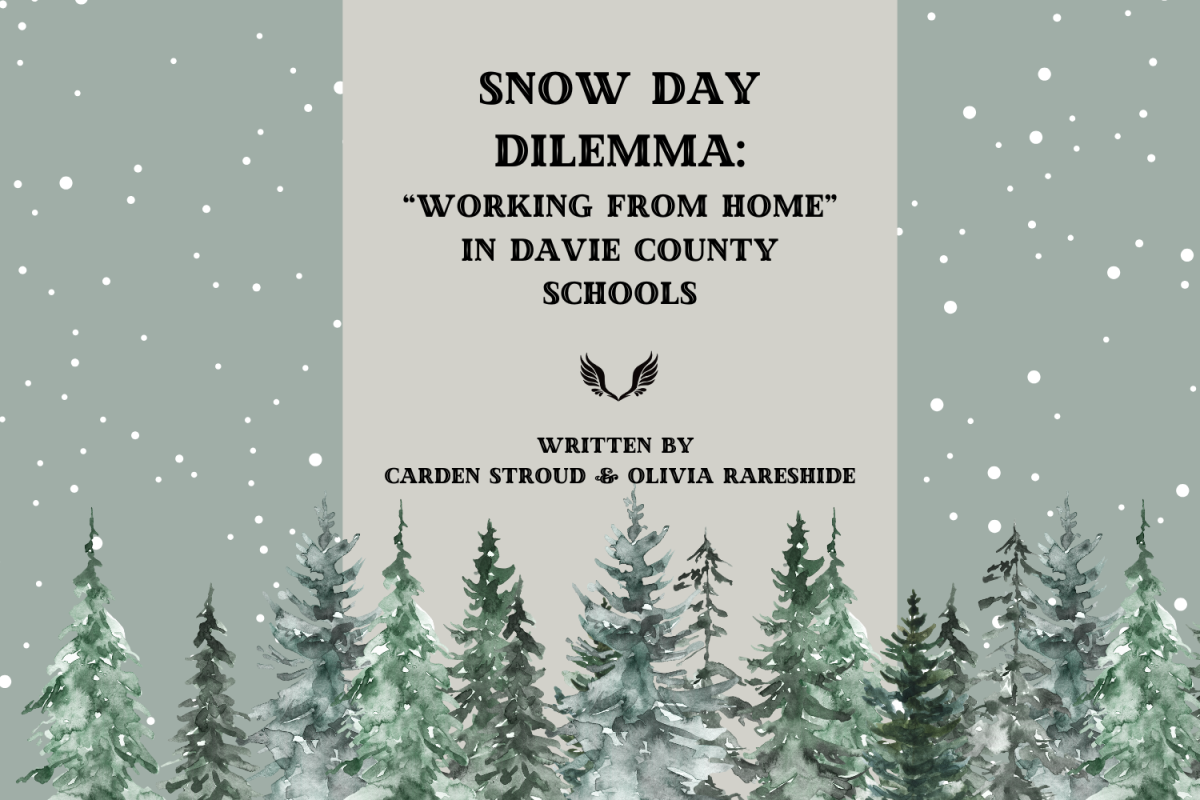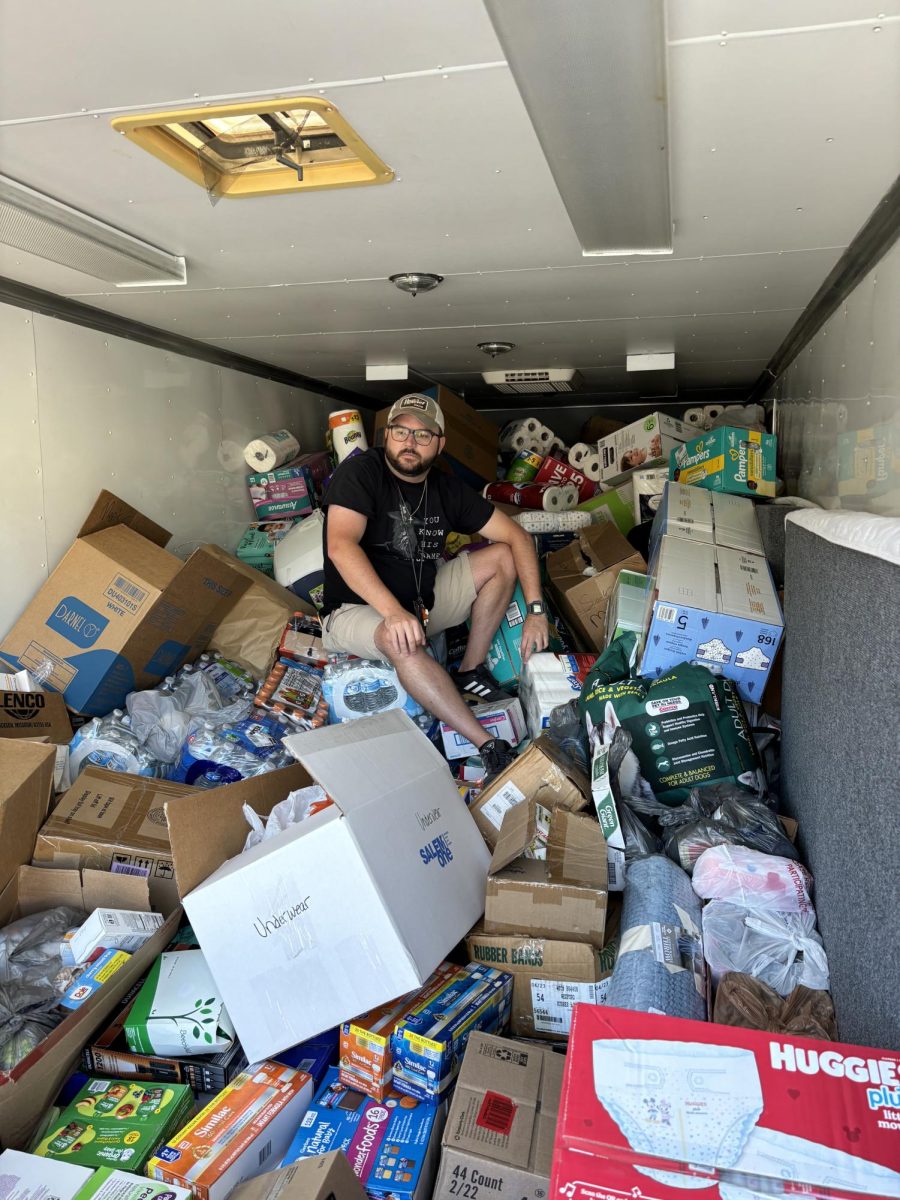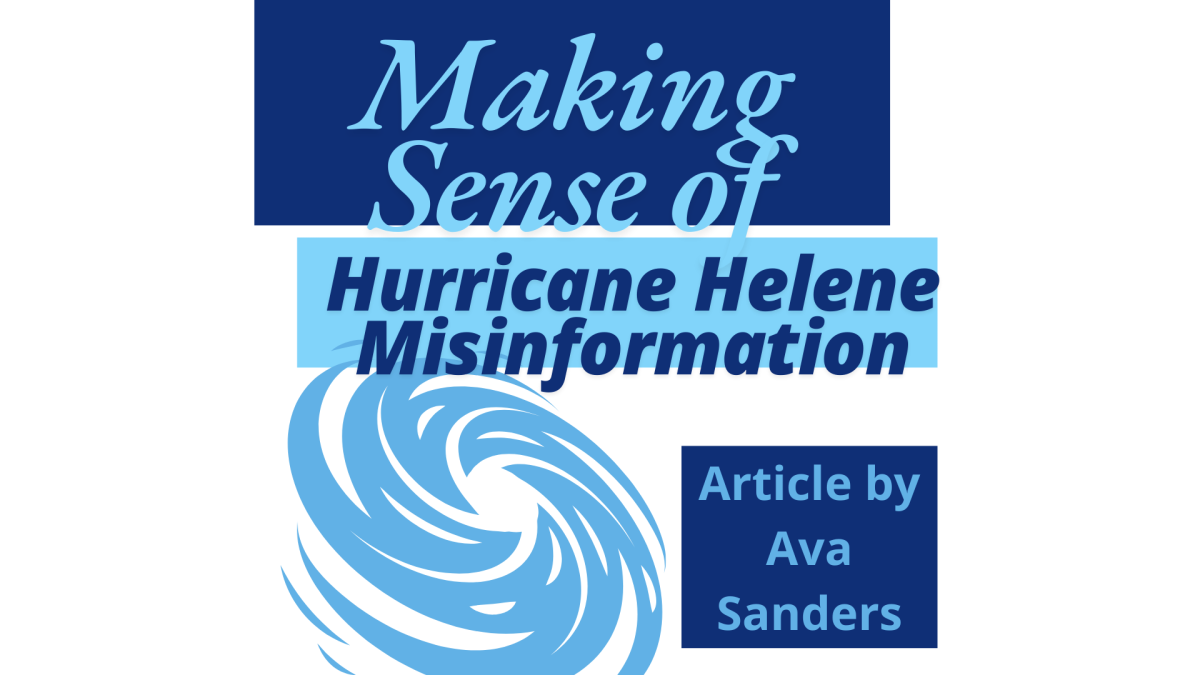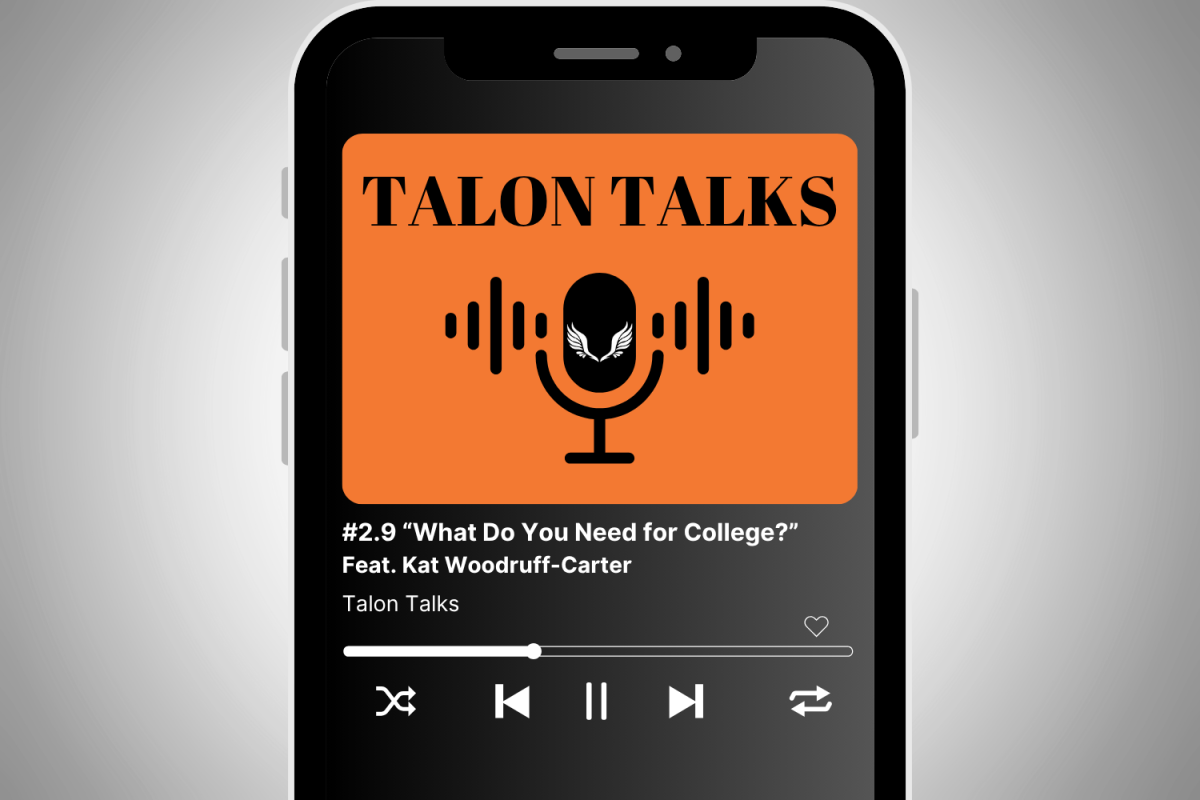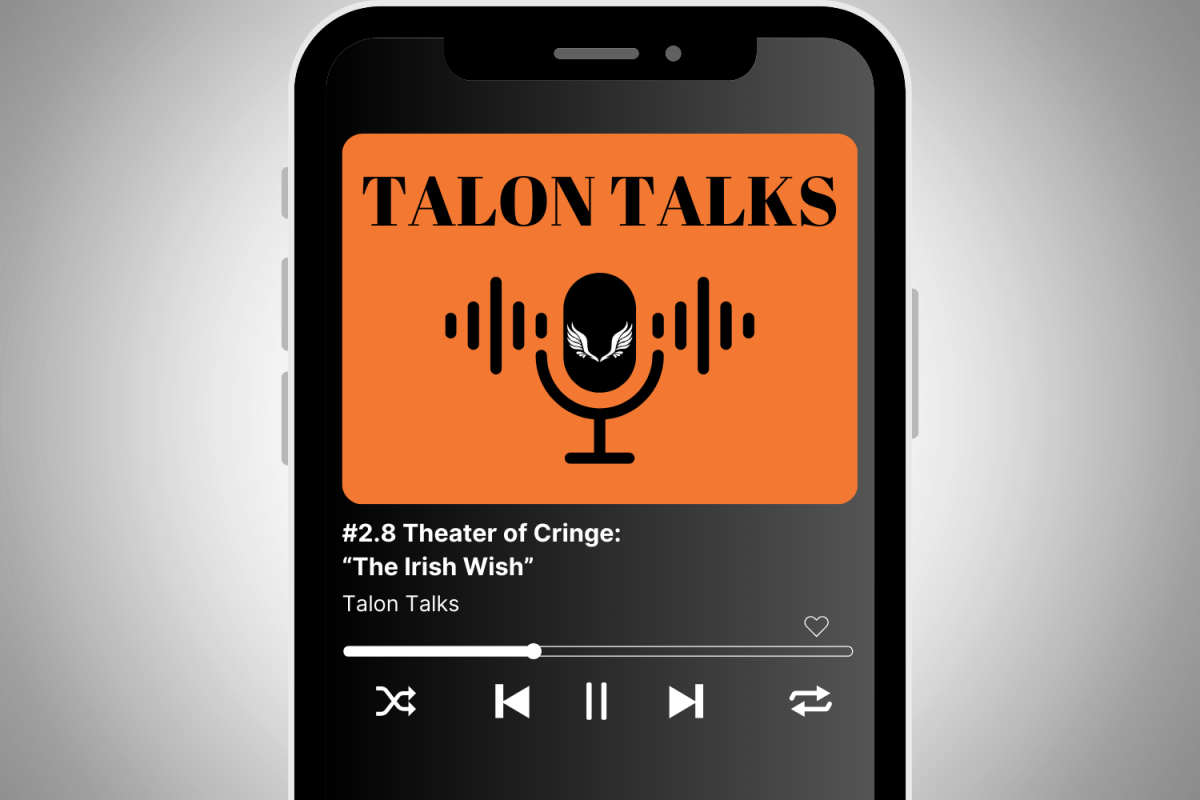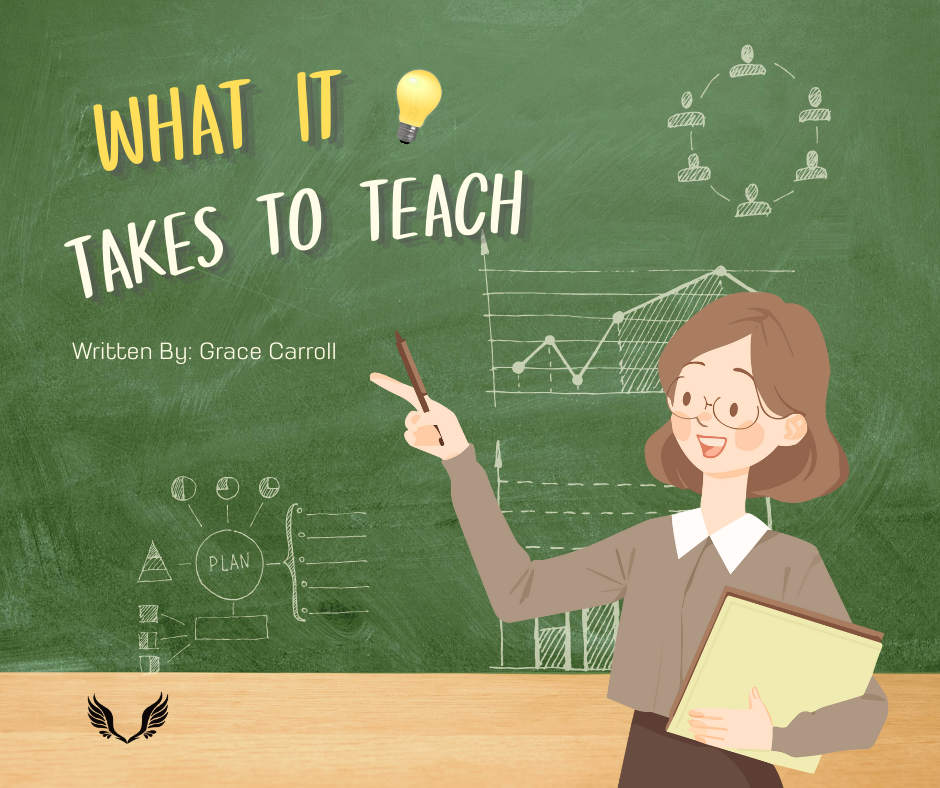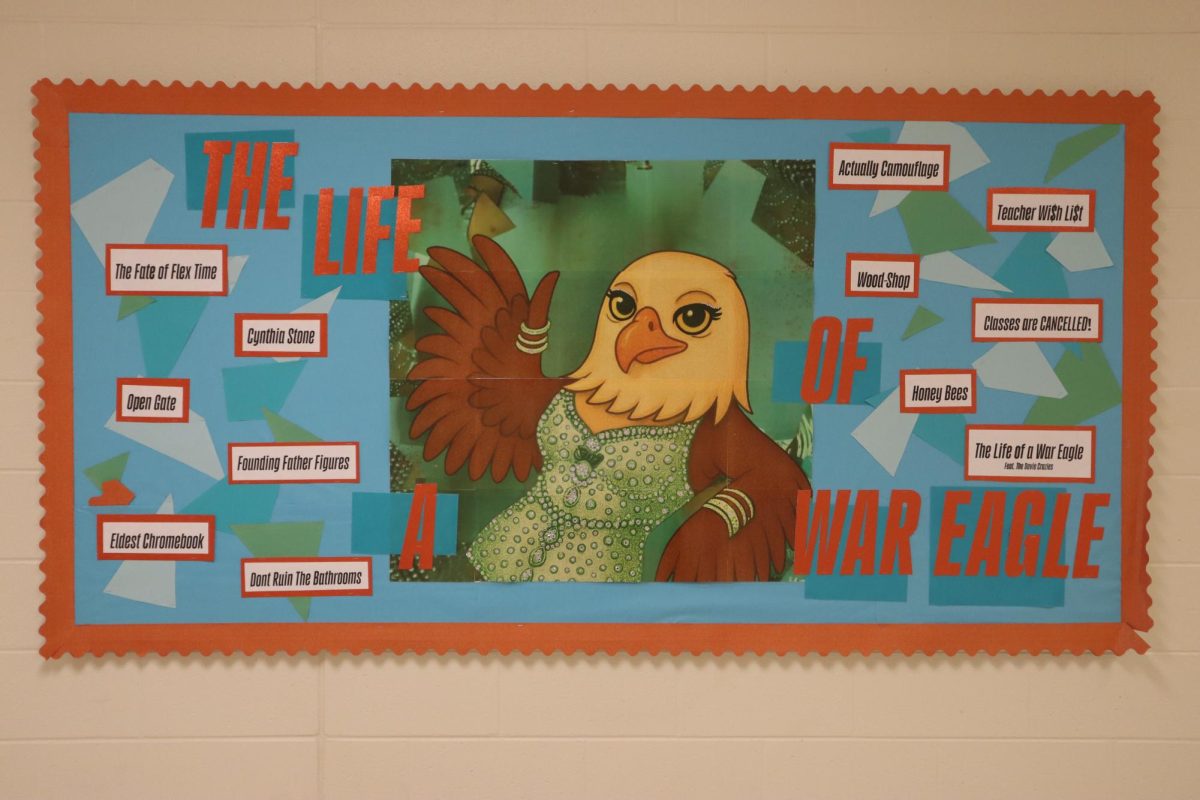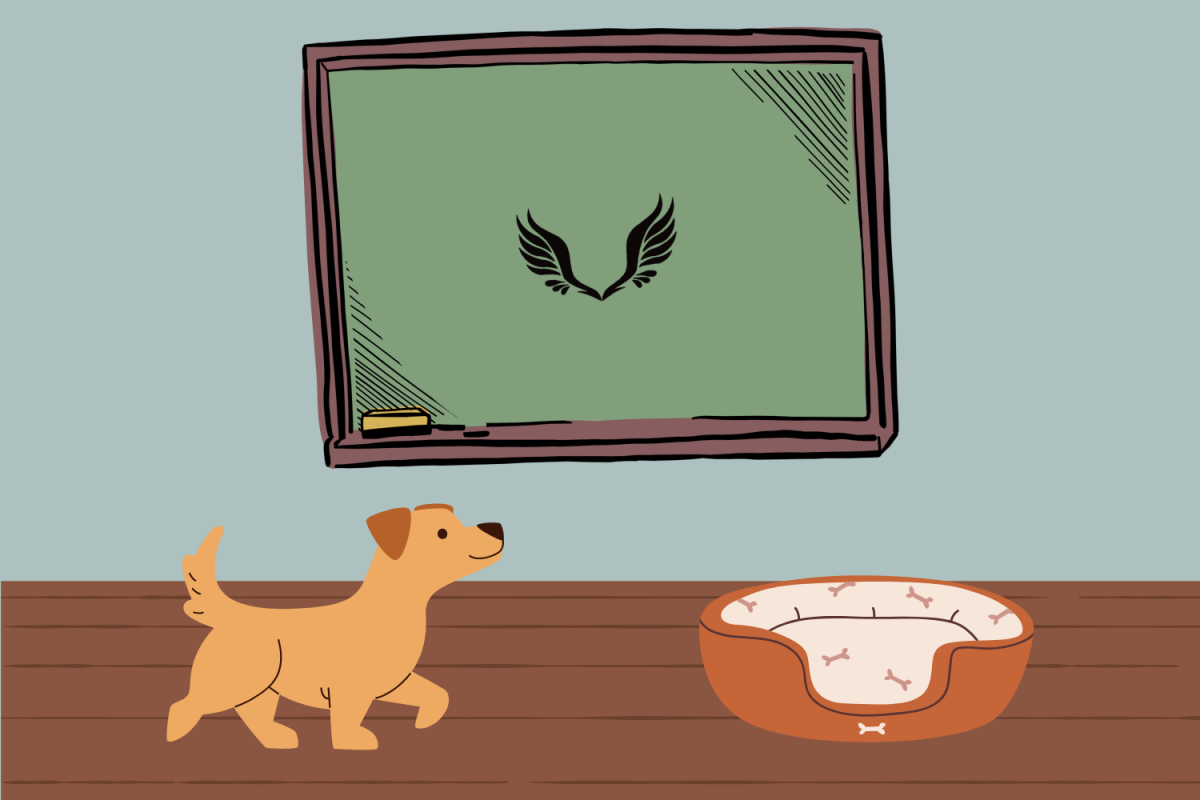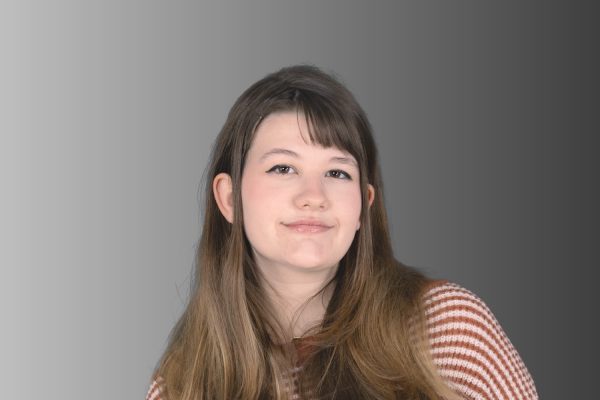In today’s media, there is often a lot of negativity surrounding teaching as a profession. Whether it be the pay or sometimes even students who can make it difficult, many can underestimate the job and, along with that, teachers themselves.
It can beg the question: “Why would anyone want to be a teacher?” Considering the heat that educators are facing right now, this is a valid question. The Weekly Talon conducted a series of interviews with the teachers at the high school and asked them what brought them to this profession.
Kyle McVey: Math
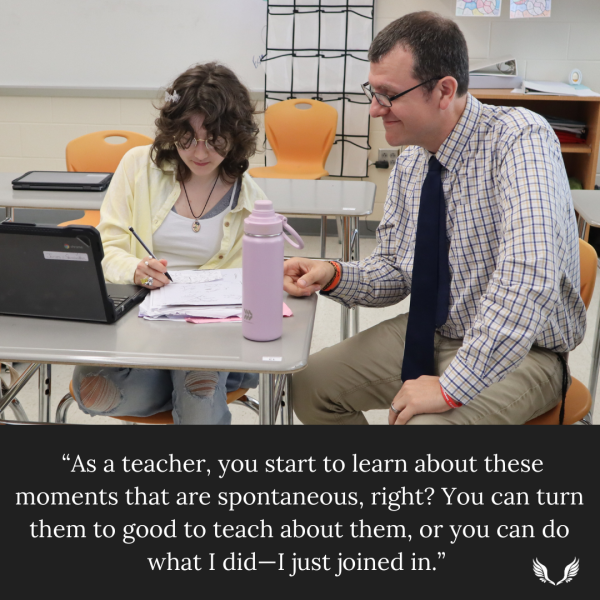
Math teacher Kyle McVey states that, initially, he didn’t want to be a teacher and that it wasn’t even a thought in his mind. As a high schooler, Mr. McVey laughed at the suggestion of going into education. Today, he has been teaching for sixteen years and is in his third year here in Davie. He tells the Weekly Talon that he has always enjoyed working with children and that math has always been his passion. McVey is also someone who values his time with his family and appreciates the summers off to spend with his kids. He goes on to tell the tale of the group of kids he had in his Math 1 class that threw a spontaneous picnic with watermelon, hotdogs, soda, and different desserts as a moment he would always remember.
“As a teacher, you start to learn about these moments that are spontaneous, right? You can turn them to good to teach about them, or you can do what I did—I just joined in.”
Kamryn Harris: Social Studies
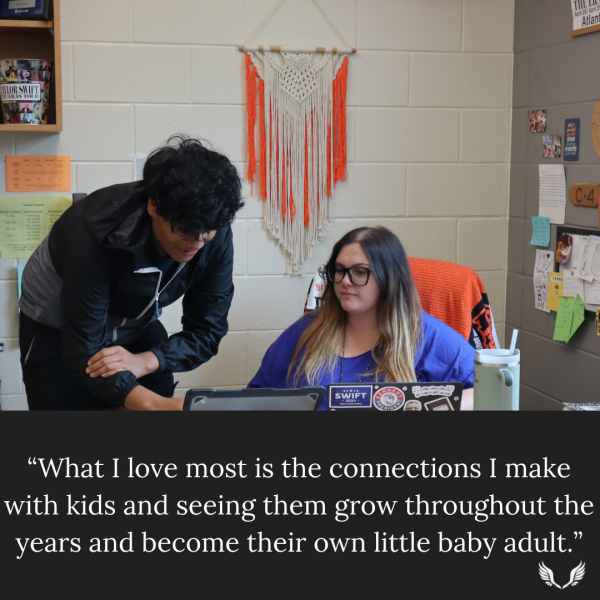
As a teacher of world history, Kamryn Harris discussed how she thinks teachers can sometimes be scrutinized in the media. With more youth being involved in politics and what is happening around them, there are vastly different opinions. She says that it is important to her while not stepping on any toes, telling the real history. She continues by telling The Weekly Talon that during high school, her mother was battling with cancer, and connecting with students who might also be struggling to find their own safe space, is something she values.
“What I love most is the connections I make with kids and seeing them grow throughout the years and become their own little baby adult.”
Brittany Darst: Choral Arts
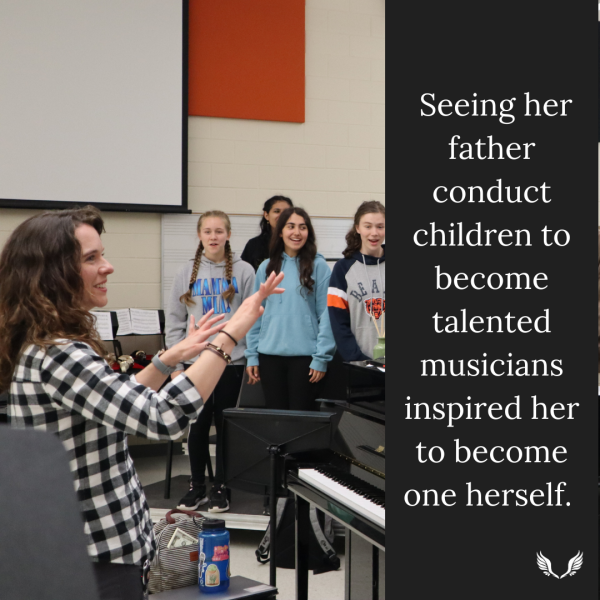
Choral arts teacher Brittany Darst plays a big role in the arts department at Davie High. In addition to her teaching duties, she also conducts and puts together the music for our annual school musical. Darst says that when she was younger, her father was also a music director when she was in high school. Seeing her father conduct children to become talented musicians inspired her to become one herself. Darst also claims that seeing her students grow and overcome challenges is very rewarding for her, even though it can be bittersweet to see them graduate and go onto their own accord.
Zachary Wood: Social Studies
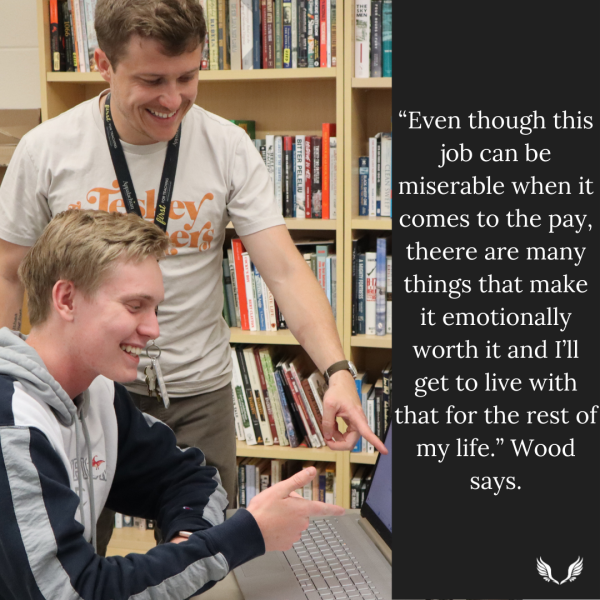
Zachary Wood is a teacher of a few subjects revolving around history and how the government operates. He currently teaches civic literacy and Holocaust and Peace Studies. During his interview, he had a lot to say about being a teacher. He describes an emotional moment between a troublesome student who was facing some issues at home. At the end of the year, said student came to him and thanked him for his impact on their life, even going on to describe Wood as a father figure they lacked.
“I have described my job to friends of mine as, ‘You are a part-time teacher, a part-time guidance counselor, a part-time friend, and a part-time listener.’ ” Wood tells the Talon. Within these groundbreaking moments, Wood goes on to say that he can sometimes feel undervalued in his job due to his educational background. Agreeing with many other educators, he says that the pay could be better. When asked if he would encourage future generations to become educators he replies with “Not in this state, no. Nobody is in this job for the money in this state. You have to care about the curriculum, you have to care about the students.” He states he spends around 5 hours outside of the classroom lesson planning for just his Holocaust and Peace Studies class, challenging himself as to how he can reach and engage with his students better.
“Even though this job can be miserable when it comes to the pay, there are many things that make it emotionally worth it and I’ll get to live with that for the rest of my life.” Wood says.
Mindy Ledbetter: Visual Arts
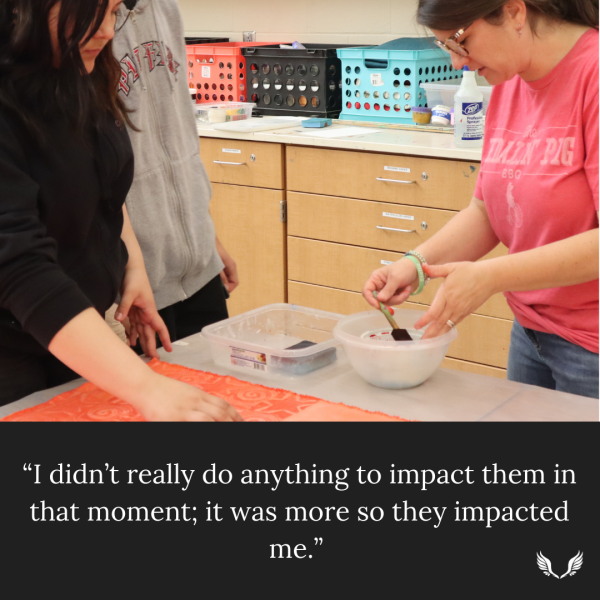
When she originally started her secondary education, visual arts teacher Mindy Ledbetter wanted to go into graphic design.
“I just couldn’t sit at a desk all day long,” Ledbetter says. “I could not see myself doing this the rest of my life.” She discusses how she came back home and started substituting and how much she enjoys that there is something new every day.
“Art is something you can carry with you your whole life,” Ledbetter says. She doesn’t mind the pay, but she doesn’t enjoy the professional development and extra seminars outside the classroom. When asked about her most impactful moment in teaching, she conveys the compassion and empathy her students showed her when her daughter became sick. When she came back after her temporary leave, her previous students had made a banner expressing that they missed her.
“I didn’t really do anything to impact them in that moment; it was more so they impacted me.”
Collin Ferebee: Science
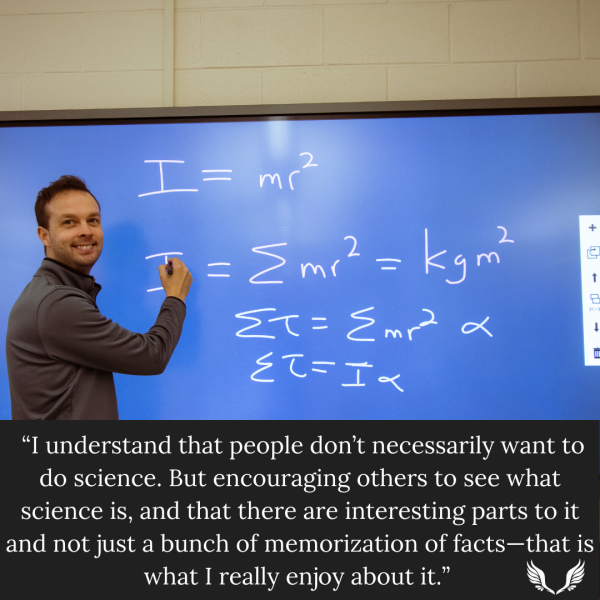
Collin Ferebee, often referred to by students and colleagues as “Ferebee,” is a science teacher whose focus lies in physics and earth & environmental science. He says that if anything brought him to this profession, it was luck. At a point in his life where he did not know what he wanted to do, he began subbing at South Davie Middle School as a way for some extra money and found he really enjoyed educating. Ferebee believes that the best thing about teaching for him is being able to share the excitement for science he has.
“I understand that people don’t necessarily want to do science. But encouraging others to see what science is and that there are interesting parts to it and not just a bunch of memorization of facts—that is what I really enjoy about it.”
He says one of his least favorite parts of the job has to do with people who know nothing about being an educator trying to critique him and how he engages with his students. When asked if it took courage to continue to teach science despite the politically charged environment that surrounds the education field, Ferebee replied, “Something I get a lot is when people say, ‘I believe in God and you believe in science.’ I’m not saying I’m pro-religion. I have not brought religion up at all because that’s not important to my class. Science is what we’re talking about here. Science is not a belief system. It’s how you view the world and the questions you ask to find the answers.”
Despite what the media can say about educators, there is so much to learn from them beyond just the subjects that they teach. During the most crucial learning periods in life, teachers often provide information students will carry with them forever. It’s important, as a non-educator, to provide teachers with grace and realize they are the people who want to help. Without educators, there is no telling what the world would look like. To be open-minded is to have a better understanding of the world around us.

